🔥 Get our iOS 17 eBook for FREE!


Safari vs. Chrome: Which browser is better for iPhone and Mac?
Updated on:
Choosing the right web browser for our devices is essential for productivity and efficiency. Safari and Chrome are two popular choices on Apple devices, each with strengths and weaknesses. In this blog, I will compare Safari vs. Chrome to help you decide which browser is better for your iPhone and Mac. Let’s dive into the differences!
Safari vs. Chrome – User Interface
Safari is designed to blend seamlessly with Apple’s ecosystem. Its sleek and intuitive user interface ensures a clutter-free browsing experience. Besides, it offers group tabs management for organizing your browsing. So you can easily focus on the content.
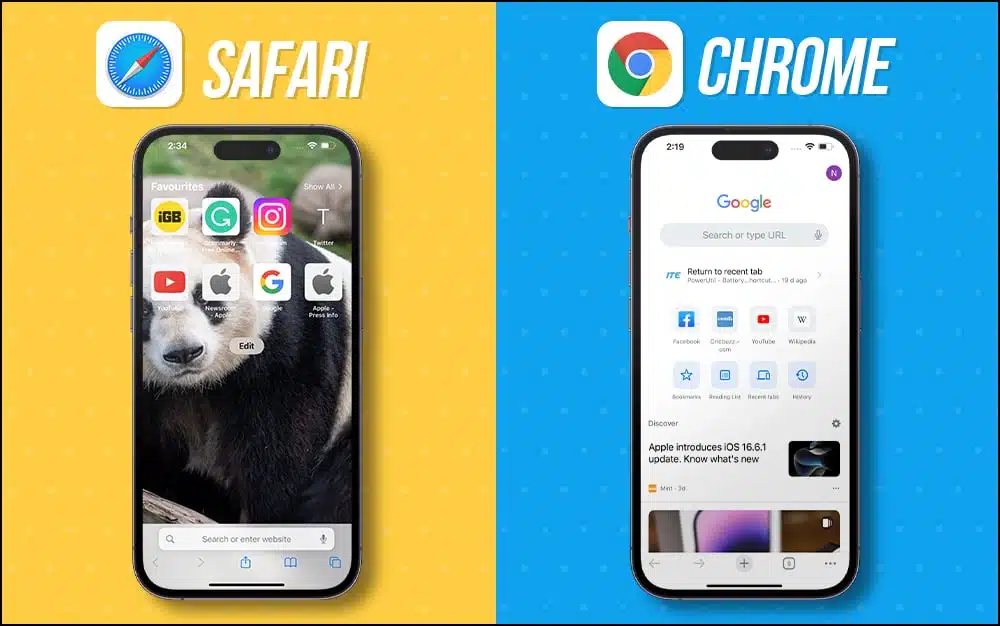
Chrome’s UI is user-friendly, with a familiar interface across devices. It lets you personalize your browsing experience with various themes, extensions, and add-ons. Nonetheless, this added flexibility might come at the cost of a more cluttered than Safari.
Therefore, both Safari and Chrome have strong UI aspects. But the winner depends on your preference for minimalism (Safari) or customization options (Chrome).
Safari vs. Chrome – Ease of use
Safari is the default browser on Apple devices. So, it offers seamless integration and synchronization with other Apple services. The intuitive gestures make it easy to navigate and use the browser effortlessly. With Smart Search, you get more relevant results without going through multiple websites. Additionally, you can quickly autofill your passwords and verification codes, saving time and effort.
With its widespread popularity, Chrome ensures a consistent experience across different platforms. The synchronization with Google accounts, bookmarks, and history is convenient for users already within the Google ecosystem.
If you own both Apple, Android, and Windows systems, Chrome will be your go-to browser. However, I only have Apple devices, so I prefer Safari to take up the work where I left it. Also, Safari allows me to create profiles to keep my personal and professional browsing separate.
Safari vs. Chrome – Performance and speed
As Apple optimizes Safari for its devices, it often outperforms Chrome regarding speed and battery efficiency. Safari’s performance is particularly notable on iPhones and Mac devices. I have experienced smoother browsing and longer battery life using Safari.
Chrome has made significant improvements in performance over time. However, it can still be resource-intensive, especially on older devices. While it performs well on Mac, it might not be as efficient on iPhones as Safari.
Safari vs. Chrome – Security
Apple strongly emphasizes user privacy and security. So Safari has built-in Intelligent Tracking Prevention and strong sandboxing. It also warns against unsafe websites, ensuring a secure browsing environment. Moreover, you may hide your IP address for data protection. With iOS 17, Safari automatically removes tracking parameters from URLs .
Google’s Chrome also focuses on security, with features like Safe Browsing and automatic updates. Besides, you may save your passwords securely and access them on any device using Chrome Password Manager . However, its ties to Google’s services raise data collection and privacy concerns.
Safari vs. Chrome – Privacy
As mentioned earlier, Safari prioritizes user privacy by blocking cross-site tracking and preventing advertisers from collecting user data. It also includes a “ Privacy Report ” feature to get insights into trackers blocked on visited websites. Besides, you can lock your incognito tabs for more privacy.
You can use Hide My Email to create unique, random email addresses that will forward messages to your inbox without revealing your actual email address. Also, you may create or delete as many addresses as needed to enjoy greater control over who can contact you.
While Chrome offers some privacy controls, it cannot match Safari’s level of privacy protection. As part of Google’s business model, Chrome collects user data to improve its services, raising concerns for privacy-conscious users.
Safari vs. Chrome – Customization
Safari’s customization options are relatively limited compared to Chrome. You can only customize the Safari start page and a few website settings. While you can install some Safari extensions , the selection is not as extensive as in Chrome’s Web Store.
Chrome’s extensive Web Store offers a vast collection of extensions, themes, and add-ons that allow users to tailor their browsing experience to their preferences.
Additional features
Safari offers Reading List, Listen to Page, PiP mode , and Handoff features to enhance the browsing experience. Also, it has a built-in PDF conversion tool to convert any webpage into a PDF. This is pretty convenient to save web pages. Besides, you can quickly share your password with family members without explicitly sharing them.
Chrome’s additional features include Google Assistant integration, cross-device synchronization with non-Apple devices, and easy access to Google Workspace. Another standout feature is the feature to do a reverse Google search on any image instantly.
Which browser is better for iPhone and Mac?
Choosing the better browser between Safari and Chrome for your iPhone and Mac depends on your priorities and preferences. Safari is ideal if you value seamless integration within the Apple ecosystem, strong privacy protection, and optimized performance. However, Safari is only limited to Apple devices.
On the other hand, you may prefer Chrome if customization options, a wide range of extensions, and additional features are more important to you. Therefore, if you want to use Chrome on your Apple devices, you may change it on your iPhone and Mac .
Ultimately, whatever you choose, both browsers will provide a satisfying browsing experience on your Apple devices. Which browser is your favorite? Let me know in the comments below!
Explore more…
- Best web browsers for Mac
- 40+ Safari tips and tricks for iPhone
- Safari crashing on Mac? Easy ways to fix it!
Want to read more like this?
Join 15,000+ Apple enthusiast to get the latest news and tips from iGeeksBlog+.
We won’t spam, and you will always be able to unsubscribe.
Leave a Reply Cancel reply
Your email address will not be published. Required fields are marked *
Save my name, email, and website in this browser for the next time I comment.
Similar posts you might also like
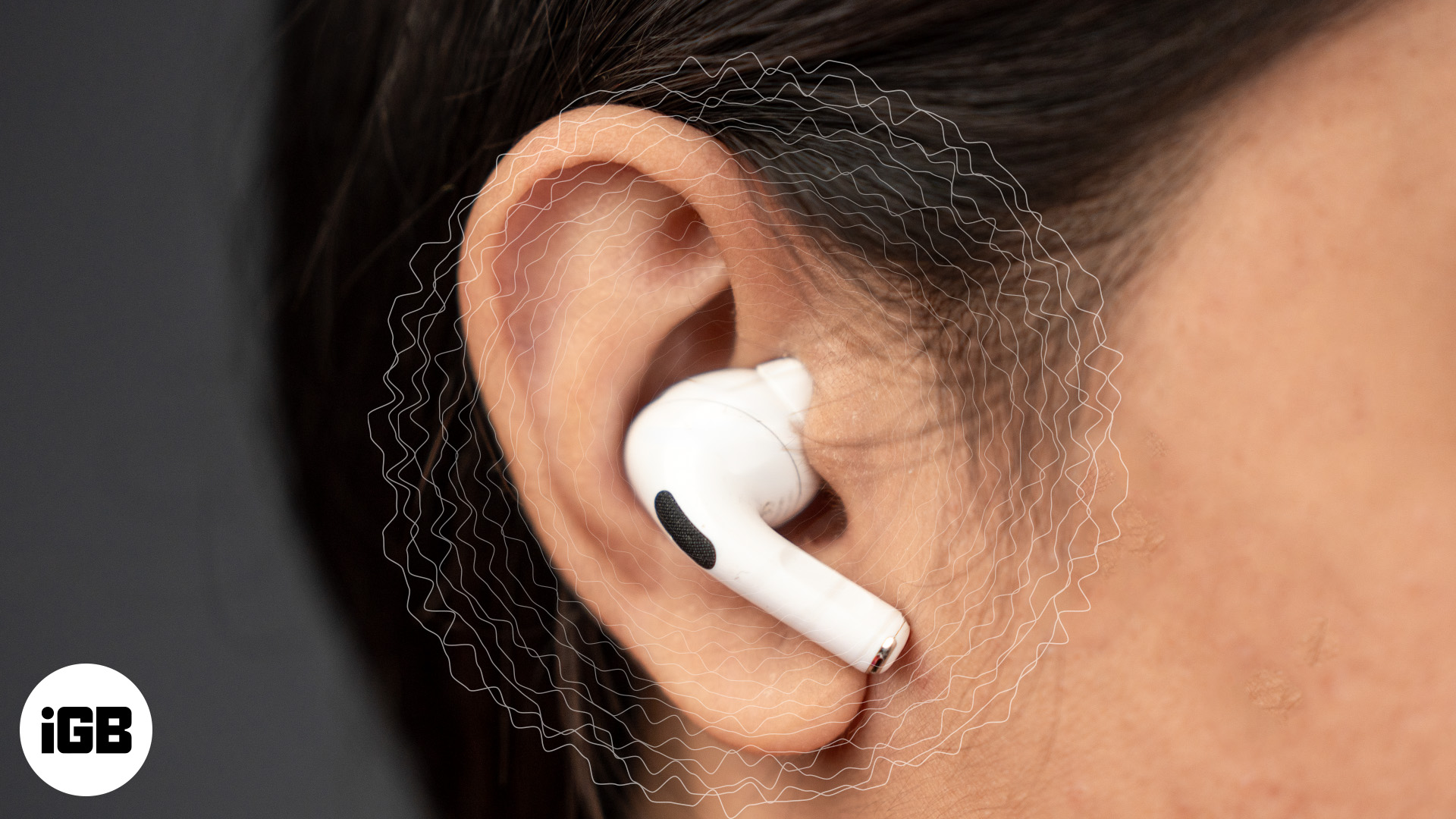
How to fix AirPods static noise quickly
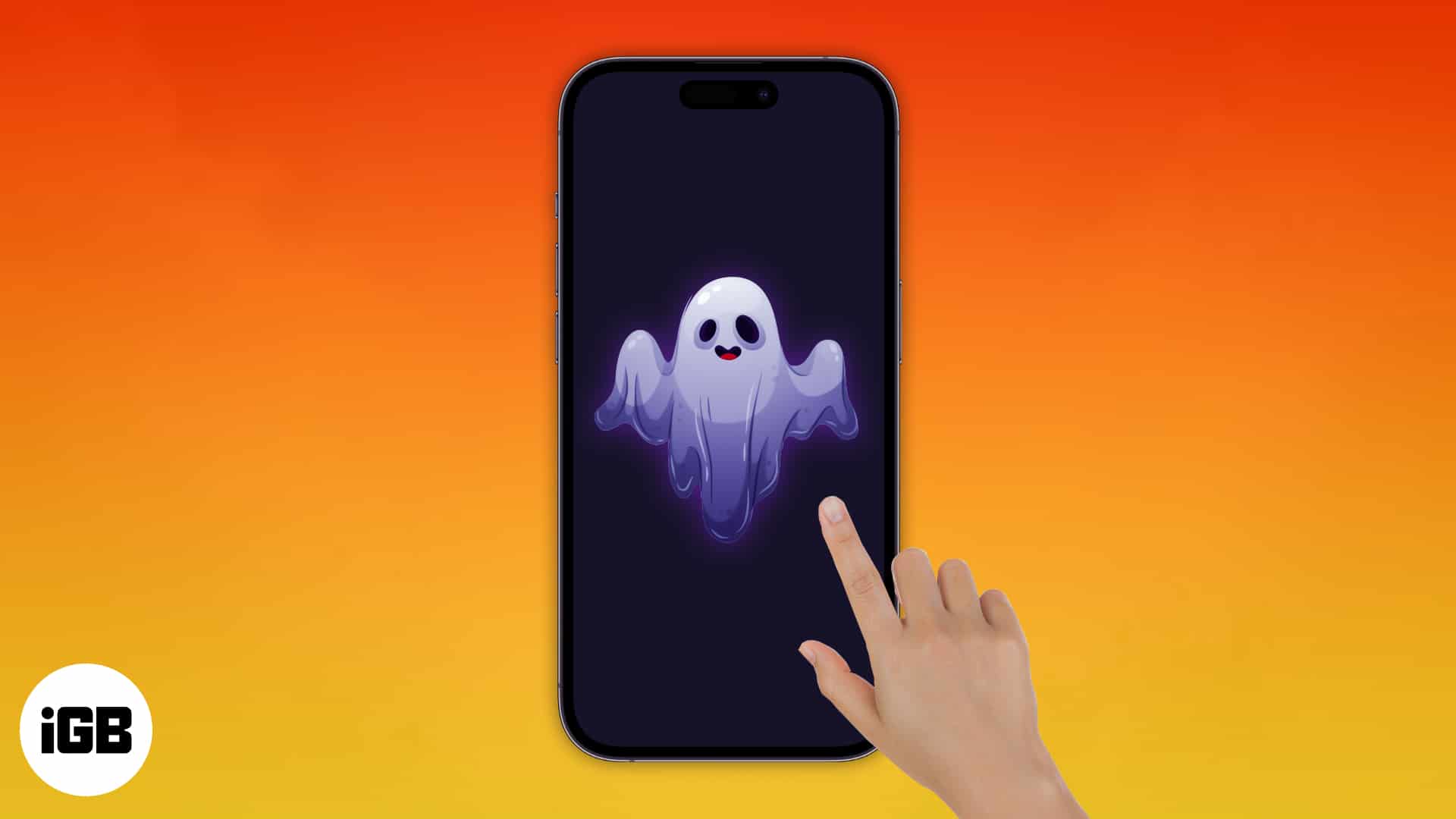
How to fix ghost touch on iPhone: Causes and fixes
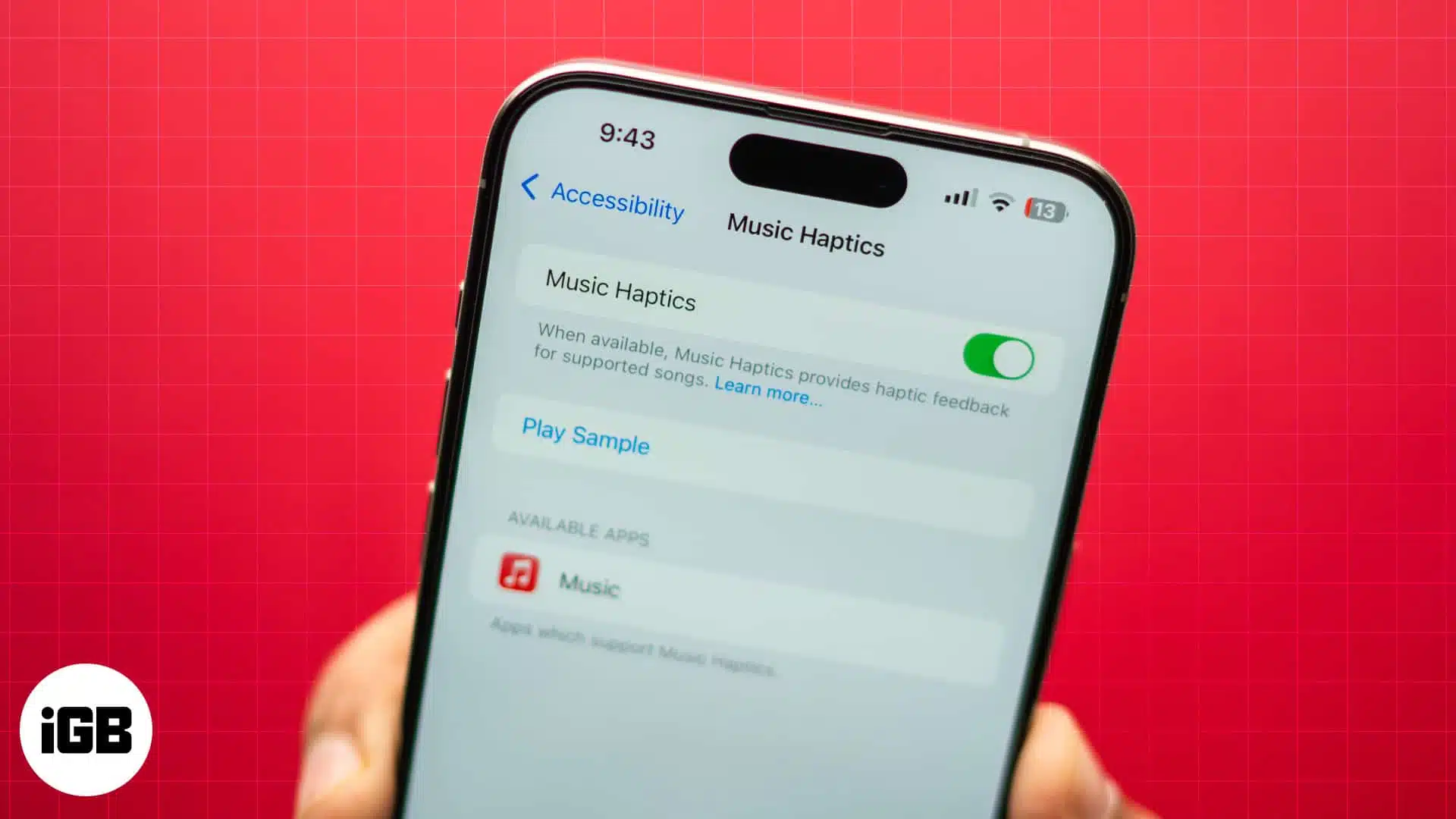
iOS 18 Music Haptics: What is it and how to use it on your iPhone?
Editorial Guide
Review Policy
© 2024 iGeeks Media Private LTD. All rights reserved.
Privacy Policy
Online Security
- Safari vs Chrome in 2024: Performance, Speed and Features Compared
Cloudwards.net may earn a small commission from some purchases made through our site. However, any earnings do not affect how we review services. Learn more about our editorial integrity and research process .
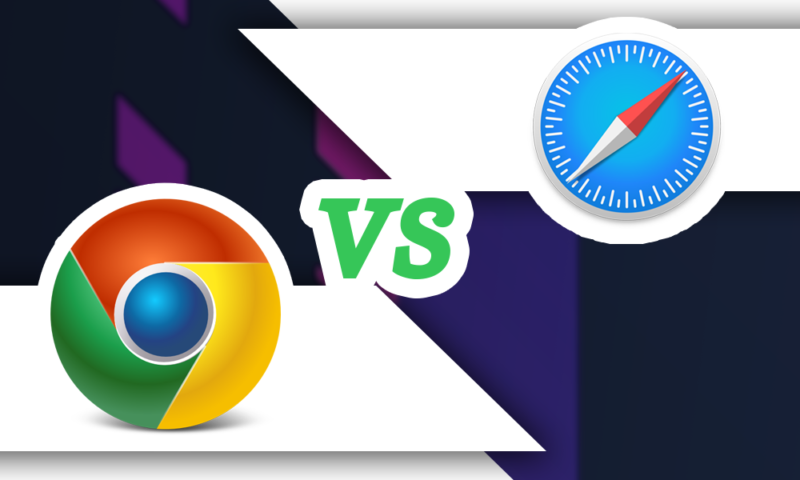
Safari and Chrome are two of the biggest players in the browser world. While Safari comes ready-to-go on Apple devices, that doesn’t mean it’s the best option — especially as Chrome is often touted as the best browser out there. See who wins in our Safari vs Chrome comparison.

Last Updated: 01 Feb'24 2024-02-01T09:54:22+00:00
All our content is written fully by humans; we do not publish AI writing. Learn more here.
It’s that time of year again where we put two of the most famous browsers in our virtual boxing ring for the battle of Safari vs Chrome. All Mac users will be familiar with Safari; it’s the default browser for Mac devices and iPhones.
However, just because Safari comes pre-installed by default, that doesn’t mean it’s necessarily the best. With applications available for the Google Chrome browser on both Apple desktops and iOS, you might be wondering if you should make the switch.
Key Takeaways:
- While Safari and Chrome are both decent browsers, Chrome’s vast library of extensions and customization capabilities means it’s a slightly better choice
- In the battle of performance, Chrome also comes up tops, offering better speed and graphics execution
- The only round where Chrome lags a little is privacy and browsing data collection, which is why we advise using this browser in conjunction with a VPN
To help you decide, we’ve done a bit of research for you, comparing Safari and Google Chrome across Mac and iOS to see which one is better. If you’re not a Mac user, then this article won’t be one for you, so we suggest you check out our Microsoft Edge vs Chrome review for Windows devices instead.
Cloudwards completed a fresh comparison of Safari vs Chrome. Since our last review, Chrome and Safari have remained relatively unchanged, making for a neck-and-neck race.
Safari vs Chrome: Rounds & Criteria
Our showdown between Safari and Google Chrome will take the form of five rounds, each focused on a different strength: features, ease of use, performance, security and privacy.
Check out our online security courses and grab a limited-time offer. Enrollment available now!
At the end of each round, one browser will come up tops and earn a point. Whichever of the two browsers scores three points overall will be the final winner. Is Chrome better than Safari? Let’s find out.
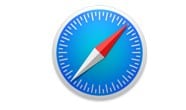
1. Features
First up in our Google Chrome vs Safari showdown, we’ll explore each of the browser’s features. It’s fair to say that Safari and Google both cover the basics of a good browsing experience pretty well but, in this day and age, most of us want more than basic functionality. Native tools, customization and extensions were all things we considered in this round.
Customization
Safari is pretty minimalist in design and functionality. While you can customize the look and feel of the browser on Mac, your options are limited. For example, you can change the background of the Safari home screen, but not the overarching color and theme of the desktop.
By contrast, Google Chrome gives you a lot more options. You can choose from over 24 color themes, or even customize your background with an image of your choice. It’s a similar story over on the mobile applications for both.
Safari’s home screen feels minimalist and static, while the Google Chrome mobile device app offers higher levels of customization. You can, for example, set your homepage to show you the latest trending news from Google News.
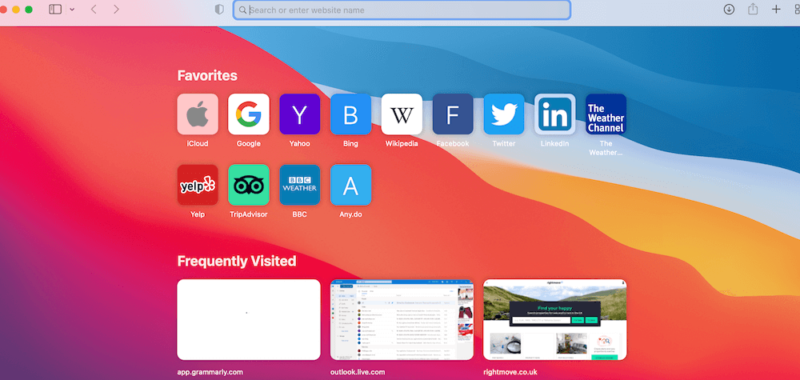
Google Extensions vs the Apple Ecosystem
Google Chrome also leads when it comes to extensions. Like Firefox, the Chrome extensions library is huge, varied and offers lots of applications for free. Read our Chrome vs Firefox review here .
Safari’s library of extensions, in comparison, feels relatively limited. While you can access big names like Honey and 1Password, you’ll also find that a lot of applications aren’t compatible with Safari.
This is especially true for VPNs. Right now, none of the top VPN providers offer a browser extension for the latest version of Safari, but they do for Google Chrome. In essence, Chrome offers much more expandability and customization than Safari.
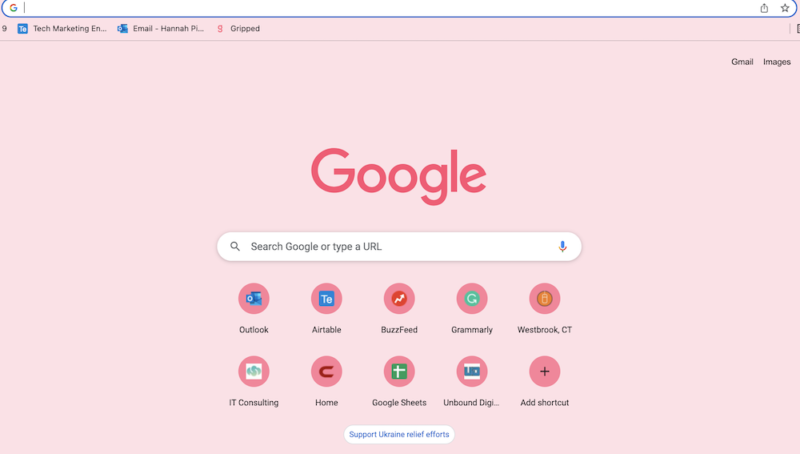
Syncing
Both web browsers offer solid syncing features. We like how Safari works in conjunction with a range of Apple features to offer a seamless browsing experience across all Apple products.
Combined with iCloud sync and Apple’s iCloud keychain software, you can move from your iPhone to your iPad to your Mac laptop without your browsing experience being interrupted, and your browsing history will also save automatically. Here’s the lowdown on how to get started with iCloud .
Safari also integrates into Mac’s other applications by default. So, if you use Mac apps like Apple Mail, Apple Calendar and iMessage, you’ll experience excellent continuity. We also like how, with compatible websites, you can use Apple Pay to pay for online shopping.
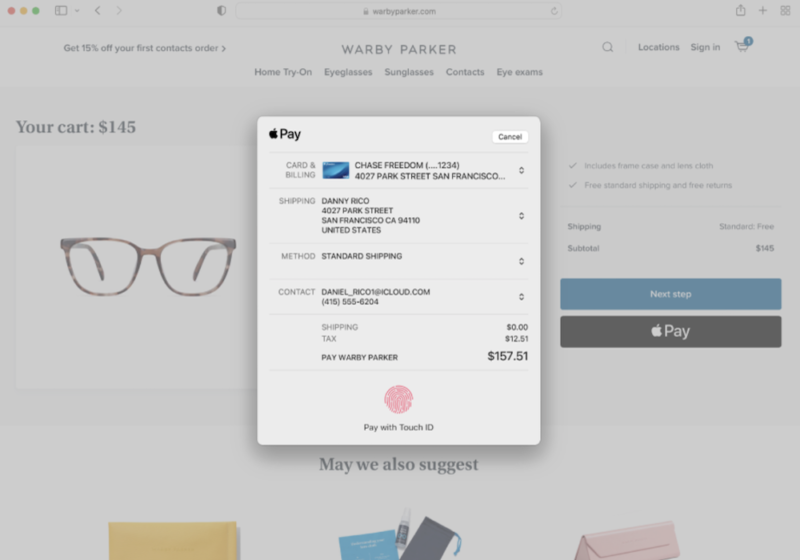
Google Chrome, though, also performs well on the continuity front. If you have a Google account, you can also sync your browsing experience across your other devices. While Google Chrome doesn’t enable Apple Pay, it has its own option — Google Pay — which you can enable for a faster payment experience.
So, Google Chrome and Safari are pretty much neck and neck when it comes to features but, with its greater levels of customization and vast library of web extensions, Google Chrome takes the lead in this round.
2. Ease of Use
Both Safari and Google Chrome are straightforward to use on desktop and mobile devices, so in this round, we analyzed which user interface felt more pleasant to use. Across iPhone and Mac, Chrome takes a slight lead here.
Safari’s user interface is minimalist and easy to get your head around. The search bar is at the top of the screen on both desktop and mobile. The home screen is then decorated with widgets showing frequently visited websites, favorite websites and suggested reading based on your browsing experience.
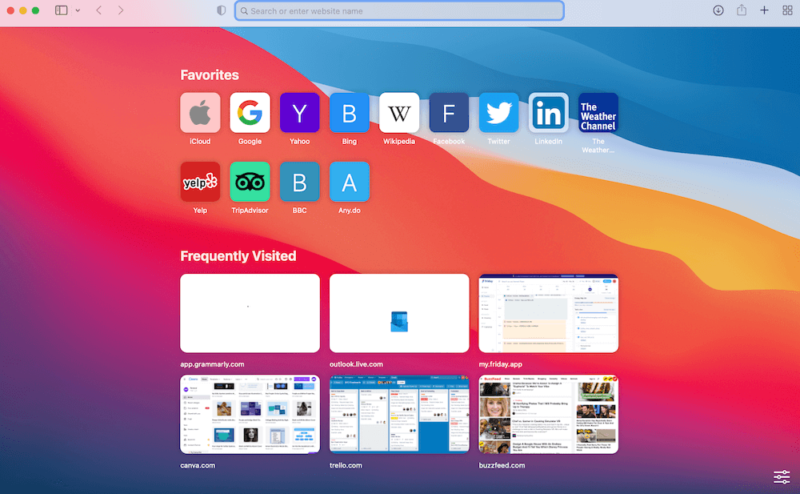
The experience is satisfactory and we also like how, if you open multiple tabs, you can click the four-square icon in the top right-hand corner of the browser to zoom out of all your open web pages, so it’s easy to find what you need.
Chrome is also really easy to use. The homepage — unless you change it — features the famous Google search bar, along with frequently visited websites below it. There’s also widgets in the top right-hand corner of the page, which give you quick access to Google applications like Gmail, Google Drive, Google Photos, Google Translate and YouTube.
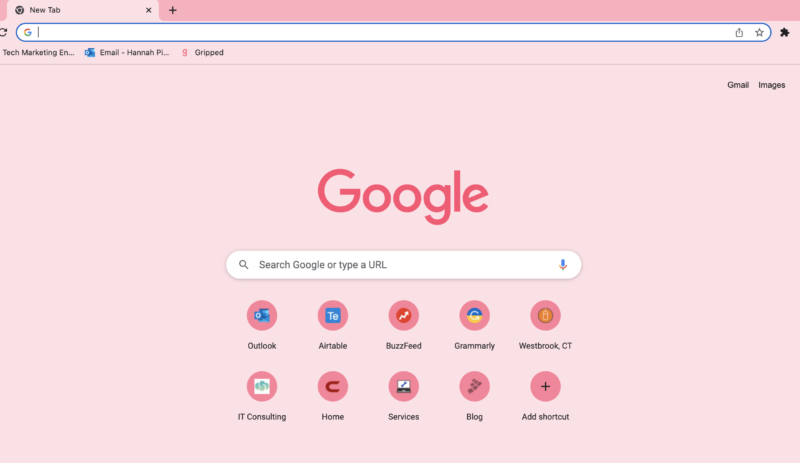
In terms of finding bookmarks, Google Chrome’s bookmarks are more seamlessly integrated into the browser, showing as small widgets below the search bar at the top of the page. To show bookmarks in Safari, you have to either manually click the bookmark tab in the control panel or enable the bookmark pane, which is quite big and invasive.
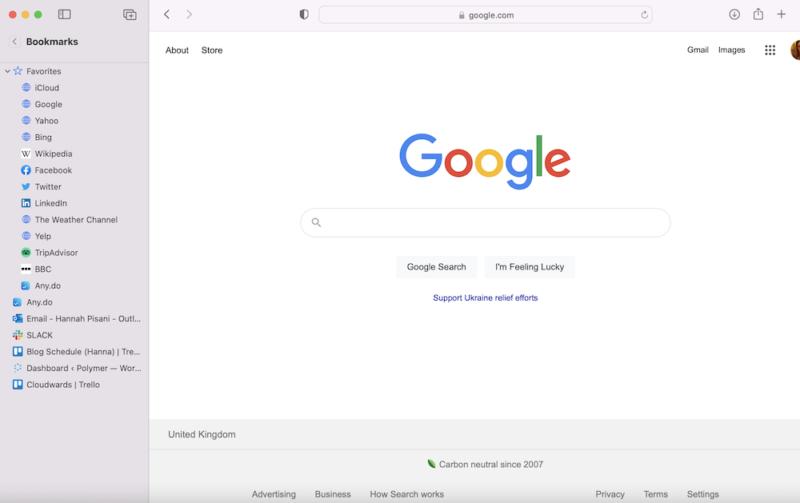
Overall, while both are easy to use, the Google Chrome browser feels a bit more dynamic and user-friendly than Apple’s browser.
3. Performance
We’ve come to what is arguably the most important round: the Safari vs Chrome speed test. We performed a benchmark test using Speedometer 2.0, JetStream 2 and MotionMark to compare Safari vs Chrome performance.
We used a MacBook Pro with 16GB of RAM and an Intel Core i5 CPU running at 2 GHz to run these tests.
Benchmark Test Results
When it comes to speed, Chrome is the clear winner, reading 122.5 compared to 113.8 on Safari. While both are respectable scores, Chrome is undoubtedly the faster option.
On JetStream, the tables turned. Safari’s reading was 125.705, putting it in the lead as Chrome’s score was 118.675. JetStream tests a browser’s ability to deal with complex JavaScript workloads. This indicates that Safari will perform better when executing complex applications — but only marginally.
The last test we performed was MotionMark, which analyzes how the browser handles complex graphics. Chrome really shone in this test, coming in at 403.6 to Safari’s 356.31. This means that Chrome’s user experience and responsiveness outperforms Safari.
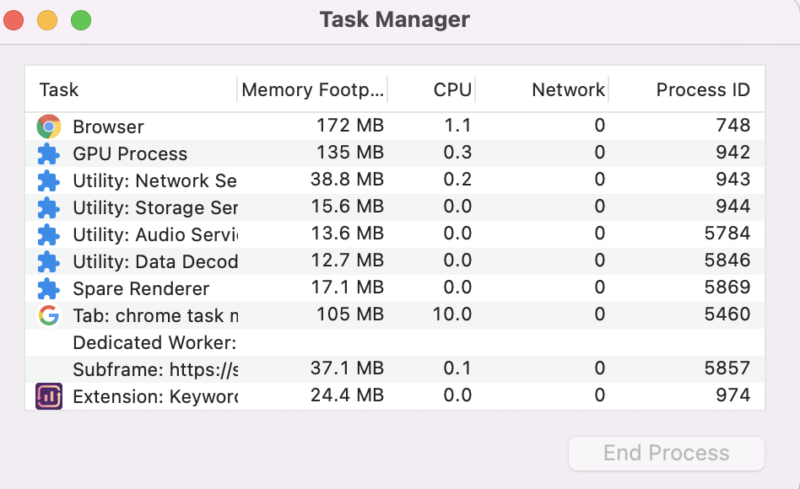
One thing worth noting is that Safari is a more lightweight browser than Chrome. While it might not be as quick, Safari is more economical for iOS and Mac performance than Chrome in terms of battery life, especially with multiple tabs open.
Despite this, with Chrome winning on two out of three of these mini rounds in the Safari vs Chrome benchmark test, it’s fair to say that Chrome is the overall winner when it comes to performance.
4. Security
Both Safari and Chrome use Google’s Safe Browsing database to keep users safe from phishing and malware. They also both offer password management functionality.
If you use Google’s password manager or Safari’s iCloud keychain, you’ll also benefit from dark web monitoring, a feature that uses data analytics to alert you to the exposure of your passwords and email addresses in data leaks and breaches.
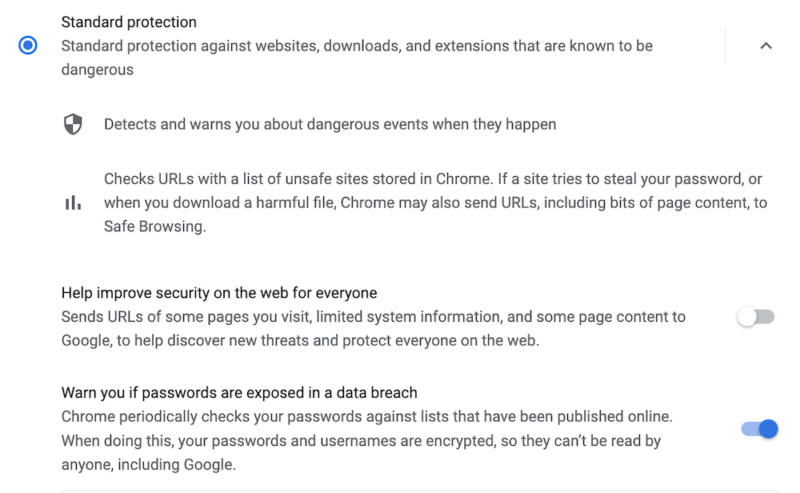
Despite these similarities, Chrome slightly takes the lead in terms of security features. We like that Google sends out frequent browser updates for Chrome, ensuring regular patching from potential vulnerabilities. Safari’s updates, by contrast, are much more infrequent.
Over the last few years, Google has gotten in trouble with data privacy regulators numerous times for its use of cookies and improper collection of personal data. Apple, by contrast, has managed to stay out of the headlines for these reasons.
We’ve taken an in-depth look at the best browsers for your privacy , which you can take a look at here.
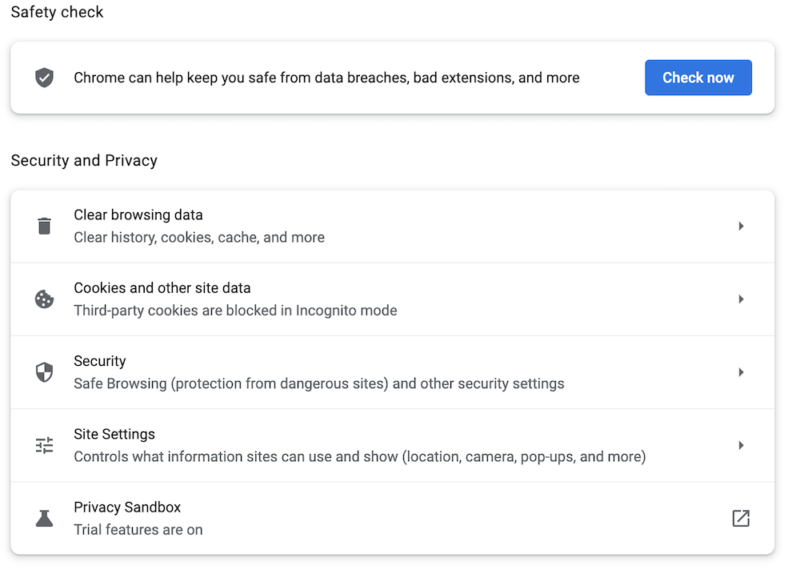
While Google appears to have learned from its mistakes and is taking steps to bolster user privacy, Apple takes the lead in this round. We like that Safari features a dedicated “privacy report” feature, which shows how the browser is protecting you from online profiling and cross-site tracking through its intelligent tracking prevention software.
Chrome also offers a “privacy checkup” function, but it’s far less granular than Safari. Also, by default, your privacy isn’t prioritized. Google automatically enables personalized ads, as opposed to blocking them. Incognito mode, as always, doesn’t do much do actually protect your privacy.
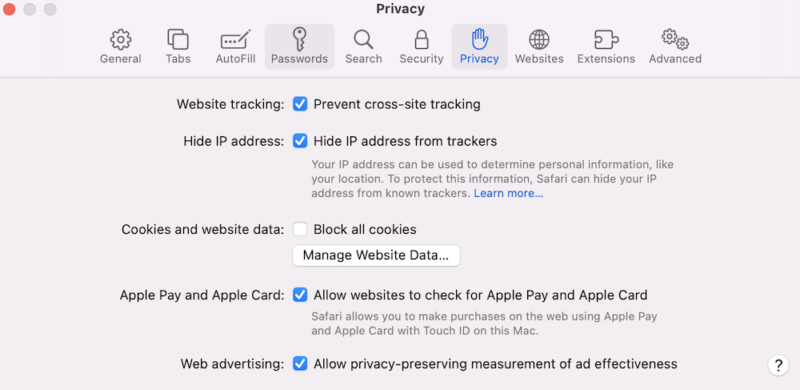
This makes sense, as advertising is such a huge part of Google’s business model, but it means that you should probably use a VPN in conjunction with Chrome. For this reason, Safari wins this round.
The Verdict
Ultimately, Safari and Chrome are both solid browser choices. For iPhone, iPad and Mac users looking for simplicity and deep integration across the Apple ecosystem, Safari is a good choice — and comes ready to go.
However, it’s also well worth downloading Chrome and setting up a Google account if you haven’t already. Chrome is a leading browser for a reason. It’s fast, easy to use and comes with unparalleled customization options.
Because of this, Chrome is our ultimate winner, but we do recommend you use it in conjunction with a VPN to ensure your online privacy.
What are your thoughts on the battle between Chrome vs Safari? Do you agree that Chrome is the better browser overall, and why or why not? Let us know in the comments. Thanks for reading!
Both Safari and Chrome are good browser choices for Apple users. However, Chrome takes the lead over Safari in terms of performance, ease of use and customization, making it a better all-round browser choice.
Safari and Chrome are both secure, and Safari actually uses Google’s Safe Browsing database. They are pretty much neck and neck when it comes to privacy and security, but if you’re concerned about your online privacy, we’d advise using a VPN.
Probably not. If you’re using Chrome, then Safari won’t offer you anything that you haven’t got already.
Great comparison, and I agree chrome wins in most everything. Review is missing a critical comparison, power consumption.
You mean on mobile?
I have win but I haven’t received any thing
I am pretty sure he means you didn’t include power consumption for desktop and mobile.
I use Safari because of the battery life and performance being pretty good. It does lack a robust extension store and isn’t cross platform outside of Apple’s OS ecosystem. Chrome has a significant market share on Mac OS because its cross platform and updates better if security is a priority for you. Safari lags in updates due to being tied to OS updates. WebKit is open sourced but mostly developed by Apple and is a fork of Chromium/Blink which Google and most other browsers use. Firefox is an option as well, but its always been slow and battery hungry as well.
Blink is actually a fork of WebKit, not the other way around.
fyi chrome uses safari’s rendering engine on iOS (as they’re not allowed to do otherwise) so speed is the same on iOS.
Firefox is much better nowadays in terms of performance and battery consumption (on MacBooks).
I Think Chrome is the browser with more day to day security and updates, for years I was a fan of Google Apps, but the fact that all of its apps are so resources’ hungry is annoying, I recently upgraded to 12GB RAM on my MacBook and the more RAM I add to my system the more RAM it uses, it’s incredibly annoying, when Safari handles everything faster with its simpler yet powerful and tidy design, using about 1/4 or less of the RAM used by Chrome, using the same websites, and the same amount of tabs open at the same time. Once I finish transferring my files from Google Drive I’ll switch everything to iCloud, it’s the way to go on a MacOS System.
Antonio, Please explain your like of Icloud. It’s the biggest annoyance.
It’s syncs seamlessly across all your devices – you can access them anywhere you can connect to the internet. It’s smart and even anticipates your needs, based on your file/folder usage behaviour.
If you’re finding it a massive annoyance then I imagine you’re *expecting* it to behave like Dropbox or Google Drive when that’s not what it was ever designed for.
Most people who find it frustrating do so because they don’t understand its purpose – I admit I fell in this camp for several years myself!
Took me years to realise that if you’re a Mac user, it’s pointless paying for eg 2TB of iCloud storage, if you don’t have 2TB of storage locally on your Mac. It’s not a storage extender like an external HD. It essentially replicates what’s on your Mac.
Not an ad, and am no way connected to him, but the ‘MacMost’ YT channel is an excellent free resource for both newcomers to Mac and experienced hands. Gary, the chap who runs it, has been around forever and watching his tutorial videos is like being taught by a friendly uncle. He has a rich, searchable back catalogue (with several on understanding iCloud!)
Regarding Chrome, I still love it – chiefly because of the vast library of extensions. I have 105 installed, but I’ve become far stricter about not keeping them all switched on all the time. I generally have about 12-15 on constantly; the rest I toggle on and off just when I need them. Seems the best of both worlds to me.
Chrome on iOS is more performant by safari. That is because, if you can choose safari, you have iOS. On iOS, chrome is always faster because it uses the same browser engine, webkit, with its own code to make it faster.
If you are on an Android phone with Google sync all across Google & Android products, Chrome is the winner!
The security on safari seems a little more liable other wise both are best but customisation wise chrome is a bit good
Liable to whom, and for what exactly? Or do you mean reliable? I’m unsure… Liable means legally responsible – do you mean Safari is run in a more legally compliant way? Please can you elaborate? Thanks
I reverted to Safari after I found that I couldn’t get a reader mode with Chrome for my iPhone and iPad.
Can’t use chrome extensions on iPad. It’s dumb.
- How to Use Surfshark in 2024: Easy Step-by-Step Instructions
- Kape Technologies Buys ExpressVPN: What You Need to Know in 2024
- 2024 VPN Speed Comparison: 7 VPNs Tested for Upload, Download and Latency
- What Is ExpressVPN Aircove Router & How Does It Work in 2024?
- 10 Reasons Why Parental Control Is Important in 2024 and Reasonable Ways to Guard Your Child’s Online Activity
- The 7 Best Parental Control App Options for 2024
- Mais Recentes
Dicas & Truques
- Privacidade
- Notícias ExpressVPN
Google Chrome vs. Safari: Qual navegador é melhor para iPhone e Mac?
David Gomes
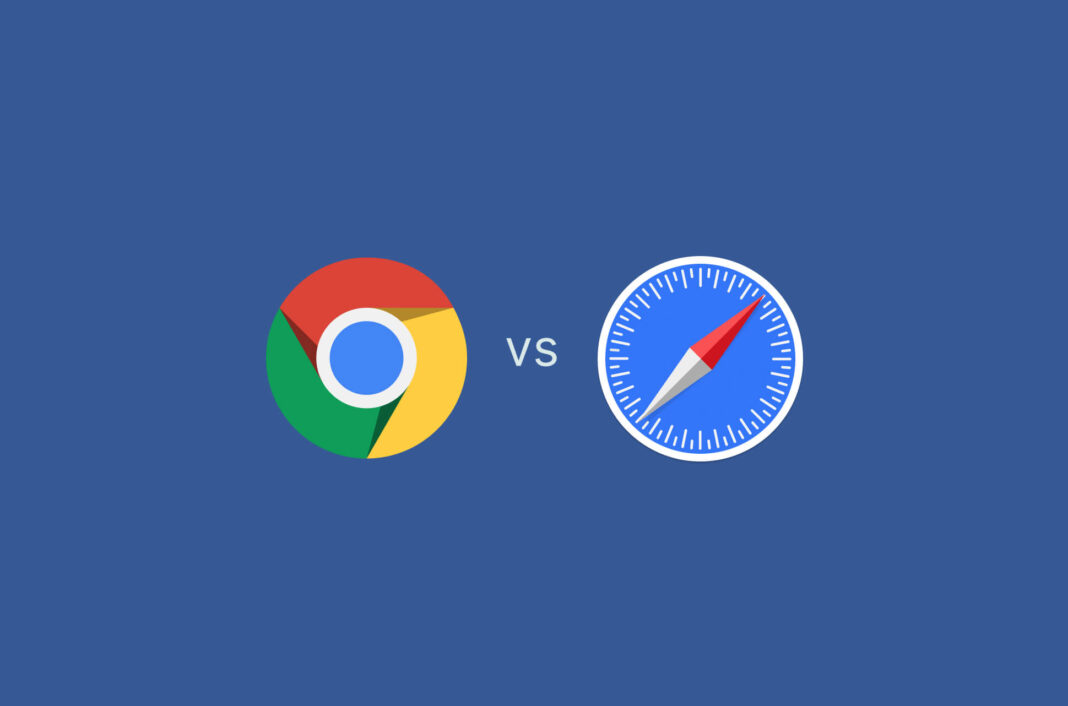
Usar um navegador de Internet tornou-se uma parte essencial do nosso dia a dia, seja para fazer compras online, assistir a vídeos ou ler este post no blog. Mas quando se trata de escolher um navegador para o seu iPhone ou Mac, a decisão pode ser complicada. Deveria optar pelo Chrome, o navegador mais popular do mundo conhecido por sua versatilidade, ou manter-se com o navegador nativo da Apple, o Safari, para uma experiência Apple mais integrada? Comparamos dois titãs do mundo dos navegadores para que você não precise fazer isso.
Pular para… Google Chrome vs. Safari: Uma comparação rápida Desempenho do Google Chrome vs. Safari: Prós e contras Funcionalidades do Google Chrome vs. Safari: Prós e contras Privacidade no Google Chrome vs. Safari: Prós e contras Desempenho do Google Chrome vs. Safari: Qual é melhor? Bônus! Desempenho de Chrome vs. Safari: 5 Fatos Aleatórios
Google Chrome vs. Safari: Uma comparação rápida
O Google Chrome foi desenvolvido pela Google e lançado em 2008, tornando-se rapidamente o navegador web mais popular do mundo com uma participação de mercado atual de 65%. O Safari foi desenvolvido pela Apple e lançado pela primeira vez em 2003. A versão mais recente do navegador é exclusiva para dispositivos Apple .
Leia mais: Google Chrome vs. Firefox
Desempenho Chrome vs. Safari: Prós e contras
O safari consome menos ram do que o chrome.
Embora ambos os navegadores ofereçam recursos e funcionalidades similares, uma diferença notável é a quantidade de memória que consomem. Apesar do Chrome trabalhar de forma relativamente rápida, ele enfrenta dificuldades quando os usuários têm muitas abas abertas ou estão executando páginas da web com gráficos intensos, levando à drenagem de RAM e lentidão do sistema.
Veredito: O Safari geralmente requer menos RAM do que o Chrome e é a melhor opção para usuários de Mac que valorizam a vida útil da bateria, pois é projetado para ser eficiente em termos de energia e utiliza aceleração de hardware para minimizar o consumo de energia. No entanto, se você depende muito de extensões que podem consumir rapidamente uma quantidade significativa de RAM, o recurso de descarte de abas do Chrome pode ajudar a melhorar o desempenho geral e a estabilidade de seus dispositivos.

O Chrome é ligeiramente mais rápido que o Safari
Como é desenvolvido pela própria Apple, o Safari é otimizado para funcionar melhor nos sistemas iOS e Mac, alcançando uma integração ideal de hardware e software – é também excelente para economizar a bateria de seus dispositivos. No entanto, em termos de velocidade, como se compara o Chrome?
O Google fez recentemente atualizações no navegador Chrome que melhoraram significativamente seu desempenho nos dispositivos da Apple. E, após realizar vários testes de velocidade no WebSPRT 4 , nossos resultados mostram que o Chrome é ligeiramente mais rápido que o Safari, tanto no Mac quanto no iPhone.
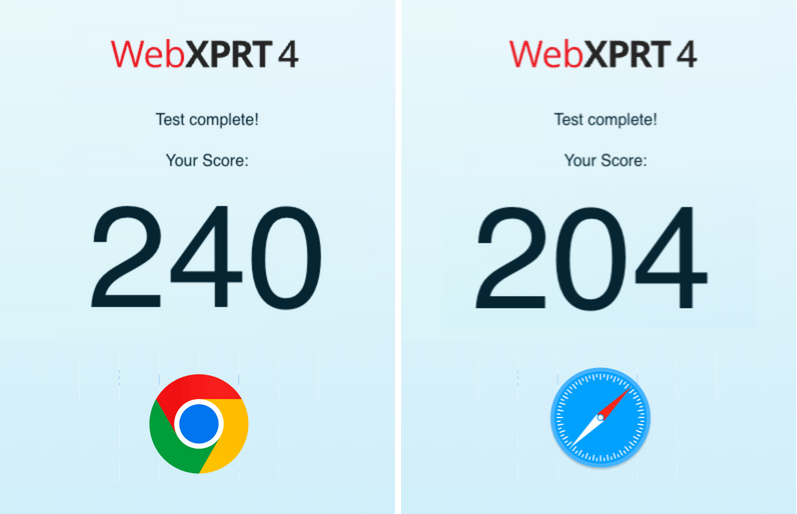
Mas isso não quer dizer que o Chrome e o Safari não tenham seus altos e baixos em termos de velocidade.
Veredito: Embora o Safari seja conhecido pelo seu desempenho otimizado em dispositivos Apple, o Chrome é considerado um pouco mais rápido. No entanto, a diferença de velocidade é mínima e pode não ser notável para a maioria dos usuários.
Chrome vs. Safari: Prós e Contras das Funcionalidades
O chrome possui uma interface limpa, mas a do safari é mais personalizável.
A interface de um navegador pode determinar a qualidade da experiência do usuário. Embora Chrome e Safari compartilhem funções semelhantes, eles apresentam diferenças distintas em seus designs. O Chrome possui um design mais minimalista e moderno, enquanto o do Safari é mais clássico.
Veredicto: Embora a interface limpa e minimalista do Chrome seja muito atraente, o Safari oferece recursos personalizáveis e flexíveis no iPhone, iPad e Mac que o colocam à frente do Chrome. As novas funcionalidades de gestão de abas do Safari, como a pré-visualização ao passar o mouse, também são um ponto forte.
O Safari suporta extensões móveis, enquanto o Chrome não
As extensões podem aprimorar significativamente a funcionalidade e as opções de personalização de um navegador. O Chrome possui uma vasta biblioteca de extensões, com novidades adicionadas regularmente. O Safari, por outro lado, tem uma seleção mais curada de extensões, mas geralmente são de alta qualidade e bem mantidas. E, enquanto ambos os navegadores permitem a instalação de extensões em dispositivos de desktop ou laptop, há uma grande diferença entre os dois no que diz respeito a dispositivos móveis.
Veredicto: Tanto o Safari quanto o Chrome suportam extensões em dispositivos Mac. Enquanto o Chrome tem uma gama mais ampla de extensões disponíveis para dispositivos de desktop, o Safari tem uma vantagem clara quando se trata de navegação móvel devido ao suporte recente para extensões web no iOS.
O Chrome oferece mais benefícios de sincronização
Tanto o Safari quanto o Chrome oferecem recursos de sincronização que permitem sincronizar seus favoritos, histórico e senhas, mantendo seus dados e configurações atualizados em vários dispositivos. No entanto, um deles apresenta ligeiras vantagens sobre o outro.
Veredito: O Google Chrome oferece mais flexibilidade na sincronização de informações entre dispositivos.
Privacidade no Chrome vs. Safari: Prós e Contras
O safari é mais seguro que o chrome.
De ataques de phishing e malwares a vírus e invasões—o mundo da navegação online está repleto de ameaças. É por isso que é essencial que o navegador que você usa possua medidas de segurança robustas para proteger suas informações sensíveis.
Veredito: O Chrome tem uma vantagem em termos de extensões de segurança personalizáveis, enquanto o Safari possui um sistema de gerenciamento de senhas superior . Usuários de dispositivos Apple podem preferir o Safari, no entanto, pela sua integração perfeita com o chaveiro do iCloud, enquanto o Chrome pode ser uma escolha melhor para aqueles que desejam mais controle sobre suas configurações de segurança.
A dependência do Google em anúncios pode comprometer a privacidade do usuário
Quando se trata de manter seus dados pessoais privados, é o Chrome ou o Safari que reina supremo? Embora o Chrome tenha uma leve vantagem na manutenção de ameaças de segurança, o Safari tem um histórico muito melhor de ser mais transparente do que o Google no que diz respeito a uma experiência de navegação privada .
Veredito: Quando se trata de privacidade do usuário, o Safari ganha com folga. A Apple é conhecida por priorizar a privacidade do usuário e coletar dados de forma mais ética que outros gigantes da tecnologia.
Chrome vs. Safari: Qual é melhor para iPhone e Mac?
Tanto o Safari quanto o Chrome oferecem recursos excelentes, e ambos vêm com seu próprio conjunto de prós e contras – então, a decisão finalmente depende do que você mais valoriza. Se priorizar velocidade e personalização através de extensões, o Chrome pode ser a escolha certa. Se você se importa mais com estabilidade e privacidade, e usa dispositivos Apple exclusivamente, então o Safari é a melhor opção.
Leia mais: Google Chrome vs. Microsoft Edge
Bônus! Chrome vs. Safari: 5 fatos aleatórios
Google chrome.
- O ex-CEO do Google Eric Schmidt foi contra a ideia de desenvolver um navegador independente por muitos anos. Os co-fundadores do Google, Sergey Brin e Larry Page, eventualmente construíram uma versão demonstrativa que fez Schmidt mudar de ideia.
- O T-rex no Jogo Dinossauro Offline do Chrome se chama Steve.
- Se você abrir mais de 100 abas no Google Chrome, a contagem de abas no canto superior direito se transforma em um smiley clássico “:)” no iOS e “:D” no Android.
- “Facebook” é a palavra mais pesquisada no Chrome, seguida por “YouTube”, “Amazon”, “tempo”, e “Walmart”.
- A pergunta mais frequente dos usuários do Chrome é “ Qual é o meu endereço IP? ”
- Ao escolher um nome para seu navegador, a Apple disse que queria que fosse um verbo. O nome “Safari” foi escolhido porque reflete a jornada do navegador pela Internet. “Safari” é a palavra em suaíli para “viagem”.
- Em 2022, o Safari tornou-se o segundo navegador no mundo a ter mais de um bilhão de usuários. O Chrome foi o primeiro.
- Você tem o Safari a agradecer por muitos usos do modo de navegação privada. Três anos antes do Google popularizar seu Modo Incógnito, o Safari já tinha um recurso para a suspensão temporária de cookies e cache.
- A Apple esconde “easter eggs” em seus ícones o tempo todo. O ícone do Mapas iOS mostra a localização da Apple em Cupertino, Califórnia. O ícone padrão do Calendário é a data em que o aplicativo foi introduzido, e o ícone do relógio iOS mostra aproximadamente a hora em que o iPhone foi anunciado. No entanto, não há simbolismo conhecido para o porquê da bússola do Safari apontar para o Nordeste além de ser esteticamente agradável.
- A primeira versão do Safari para Windows foi lançada em 2007, mas foi descontinuada em 2012 devido ao baixo uso.
Você prefere usar o Safari ou o Chrome como seu navegador preferido? Conte para a gente nos comentários abaixo!
Melhor VPN para smart TVs e dispositivos de streaming

Dê o primeiro passo

Gostou do que leu?
Aplauda este post ou compartilhe a sua opinião!
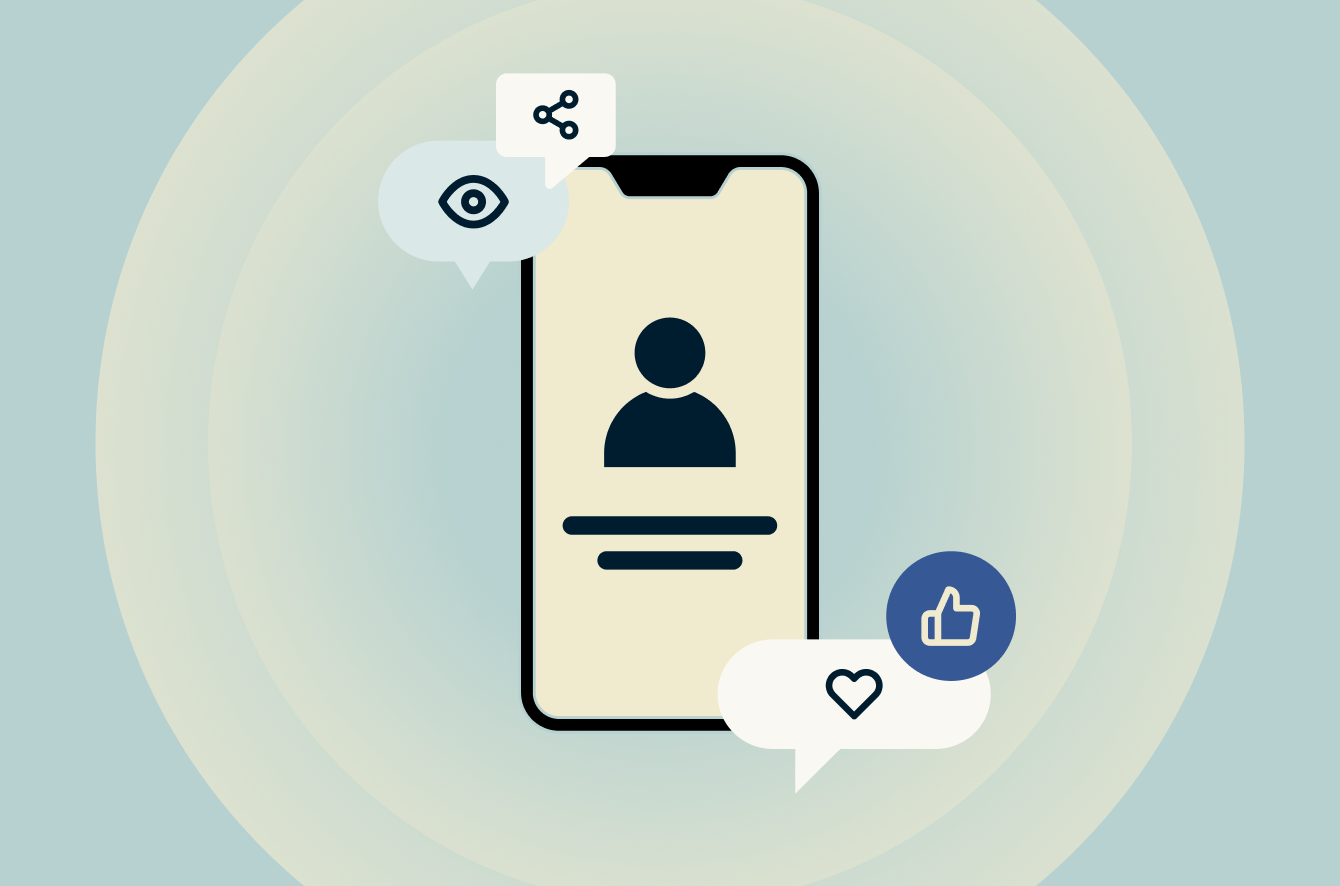
- Posts Relacionados
- Posts em Destaque
- Mais deste Autor

Como excluir sua conta do Snapchat permanentemente

Porta HTTPS 443: o que é e é seguro abri-la?

Como excluir permanentemente sua conta do Instagram

A Energia Solar é o Futuro. Os Sistemas Fotovoltaicos são Ciberseguros?

O que é VPN no iPhone e por que você precisa de uma em...

O que é o bloqueio geográfico e como ele funciona?

Caça Bugs da ExpressVPN oferece recompensa de até US$ 100.000

Como acessar a dark web

Séries exclusivas e gratuitas do BBC iPlayer

Onde assistir House of the Dragon em 2024

Onde assistir The Mandalorian Temporada 3 online

Onde assistir The Last of Us online

Onde assistir All American em 2024

Deixe um comentário Cancelar resposta
O seu endereço de email não será publicado. Campos obrigatórios marcados com *
Você pode usar tags e abributos HTML :
<a href="" title=""> <abbr title=""> <acronym title=""> <b> <blockquote cite=""> <cite> <code> <del datetime=""> <em> <i> <q cite=""> <s> <strike> <strong>
ExpressVPN orgulhosamente apoia

Escolher o idioma
- Internet Near You
- Cheap Internet
- Fiber Internet
- Rural Internet
- Satellite Internet
- Fixed Wireless
- 5G Internet
- DSL Internet
- Internet & TV Bundles
- Cable TV Providers
- Satellite TV Providers
- Streaming Services
- CenturyLink
Internet Speed Quiz
Compare Providers
Run Speed Test
- Best RV Internet Options
- Best Student Internet Deals
- Best Internet for Remote Work
- Best Smart TV Apps
- GIVE OUR EXPERTS A CALL call 833-481-4463
- Internet Near You chevron_right
- Cheap Internet chevron_right
- Fiber Internet chevron_right
- Rural Internet chevron_right
- Satellite Internet chevron_right
- Fixed Wireless chevron_right
- 5G Internet chevron_right
- DSL Internet chevron_right
- Internet & TV Bundles chevron_right
- Cable TV Providers chevron_right
- Satellite TV Providers chevron_right
- Streaming Services chevron_right
- EarthLink chevron_right
- CenturyLink chevron_right
- Xfinity chevron_right
- Viasat chevron_right
- HughesNet chevron_right
- Frontier chevron_right
- AT&T chevron_right
- Spectrum chevron_right
- Verizon chevron_right
- Cox chevron_right
- Best RV Internet Options chevron_right
- Best Student Internet Deals chevron_right
- Best Internet for Remote Work chevron_right
- Best Smart TV Apps chevron_right
Find Faster Internet Near You
We're here to help you find the best internet based on your needs and location. How we make money
Safari vs. Chrome: Which Browser is Better?

HighSpeedOptions prides itself on providing honest, quality content. While we may be compensated when you make a purchase through links on our site, all opinions are our own. Here's how we make money.
Table of Contents
Safari and Chrome dominate the browser market. But which browser is better? Make the most of your high speed internet experience and compare which of the top two browsers is best for you.
Quick Links
Apple safari, google chrome.
- User Experience
- Privacy and Security
- Device Compatibility
- Performance
- Final Verdict
Baked into Apple’s iOS and MacOS devices, Safari is a robust and feature-rich browser. While it excels at privacy, it does have it’s downsides. Here are a few things to keep in mind when considering Apple’s native browser:
Safari is built from the ground up to work with Apple devices
Exceptionally strong privacy features, seamlessly syncs in the apple ecosystem, performs well on ios and macos, with increased battery life and fast page loading, clean, intuitive user interface, fewer add-ons & extensions compared to chrome, struggles to compete with google’s suite of online services, only compatible with ios and macos devices, fewer customization options.
Google’s Chrome browser dominates in terms of market share , but there are some security and privacy risks to consider. It’s a must-have if you live in the Google ecosystem and its customization is unsurpassed.
Compatible with a range of popular Google services, including Gmail and Maps
Feature-rich user interface, wide variety of native browser apps and extensions, fast, open-source browser, compatible with many devices, google’s data collection raises privacy concerns, the same goes for many chrome extensions and apps, power hungry, which leads to rapid battery drain, uses more cpu and memory than the native safari browser, user experience: chrome.
Side by side, Safari and Chrome check off both of these boxes by sporting a minimalist layout that’s easy to navigate. However, one browser clearly goes the extra mile.
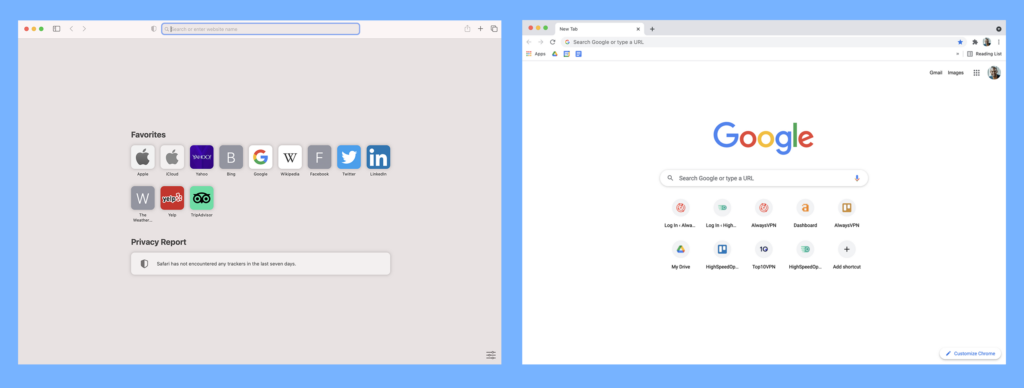
Safari offers a standard tabs organizer, a bookmark manager, privacy settings, and a historical archive. However, the tabs organizer is a little inconsistent across devices. You’ll find a nice grid layout on desktop and a stacked deck on mobile that quickly becomes an endless scroll.
In comparison, Chrome acts as a hub for all Google products. It comes with the same abilities Safari has as well as seamless integrations with Gmail, Google Drive, Google Translate, Google Nest devices, and in-app settings. If you live entirely within the Google ecosystem, Chrome is a must-have.
When it comes to user experience, Chrome takes the lead with its sleek interface, and ease of use.
Features: Chrome
When choosing between Safari and Chrome, features are a significant factor, aside from user experience. Personalizing the browser, merging multiple apps in one window, and performing more actions attract users.
Both Chrome and Safari share common features like bookmarks, reading lists, and history logs across devices. However, the real differentiator is browser extensions. Extensions enhance and modify a browser. While Safari offers only 350 extensions , many of which are pay-to-use, Chrome has over 175,000 extensions in the Chrome Web Store , making it the clear winner for features, along with its Google app integrations.
Privacy & Security: Safari
Chrome and Safari are big on security measures – blocking popups by default, utilizing a Safe Browsing database to prevent malware, and frequently releasing software updates to fix bugs. However, privacy is an entirely different story.
Safari collects data for website recommendations and UX improvements, but offers easy opt-out options. The “Privacy Report” shows trackers blocked weekly, and Private Browsing masks browsing history and blocks cookies. Safari also provides a “Hide My Email” feature to create unique forwarding addresses and Touch ID or Face ID for purchase verification.
Google Chrome isn’t shy about collecting all your data with vague privacy policies and loose tracker practices. Predictive searches, URL suggestions, and even Private Incognito mode becomes a threat to user privacy. It’s hardly surprising since the tech giant’s primary revenue stream is advertising.
Unlike Google, Apple doesn’t rely on ads to keep the lights on, which allows it to put users’ privacy first. If you care at all about your personal pri v acy online , the choice is a no-brainer.
Device Compatibility: Chrome
Chrome works on all major platforms including Android, Linux, iOS, macOS, and Windows. So, whether you’re all-in on Apple products or prefer to mix things up, you can access your Chrome information across devices.
Safari is limited to iOS and macOS devices. Unless you have an iPhone, iPad, or Mac computer, you’re out of luck. The winner here comes down to what hardware you use. Safari is the default browser on all Apple devices, but if you want more flexibility, Chrome will work across all of your devices.
Performance: Safari
If used for general, light browsing, Safari and Chrome perform similarly in terms of speed and power consumption. However, when you start to work in multiple tabs, Safari is far superior.
Google Chrome’s 12-hour power consumption is significantly greater than Safari. Keep this in mind if you travel or spend long hours away from an outlet.
Safari offers better hardware-software integration, which is no surprise since it only works on Apple devices. On average, it loads websites 50% faster than Chrome and lasts 1.5 hours longer when browsing or streaming videos . This is because Safari uses minimal RAM while running compared to Chrome. If you rely on fast internet speeds , we recommend using a lightweight browser like Safari every time.
Safari vs Chrome: Final Verdict
After analyzing both browsers, we found Chrome to be the best choice. It offers seamless integration, advanced features, and compatibility across devices. But for those prioritizing privacy, Safari is your go-to option. It’s equipped with built-in defense mechanisms that you can rely on.
Find providers in your area
Share this post:, featured posts.
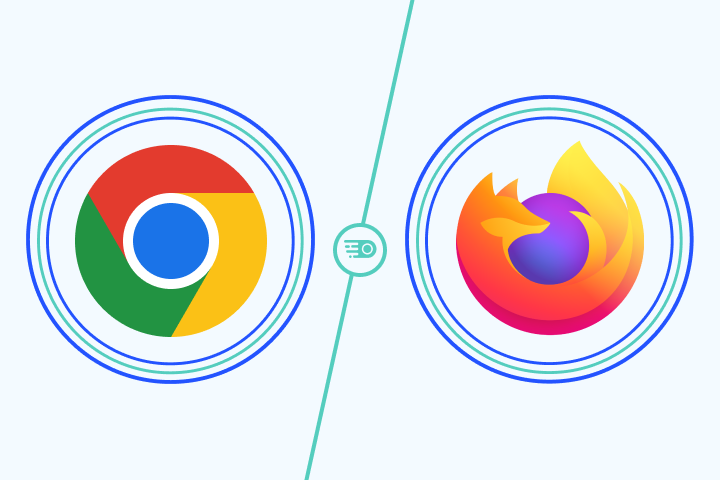
Chrome vs. Firefox: Which Browser is Better?

Is Google Fiber Worth the Hype?

10 Ways to Secure Your Home Network
Privacy overview.

- Chrome vs. Safari - Which Browser Is Best for iPhone and iPad?
Chrome vs. Safari – Which Browser Is Best for iPhone and iPad?
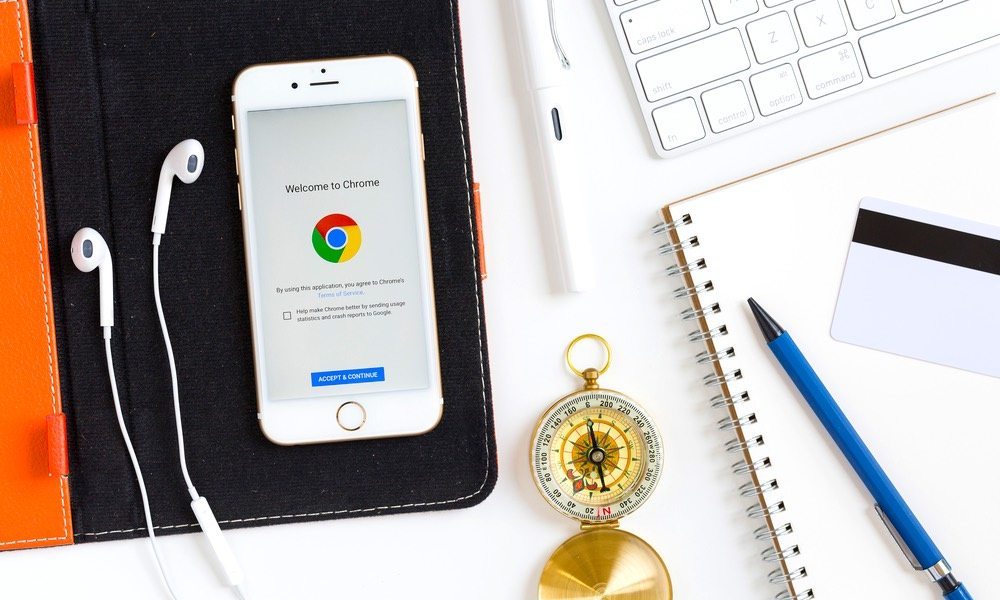
Toggle Dark Mode
Chrome vs. Safari – Which Browser Is Best for iPhone and iPad?
Browsing the web is one of the most important functions our smartphones serve. And if your device runs on iOS, you’ve probably encountered Apple’s proprietary Safari browser. But with top-notch competitors like Google Chrome available on the App Store, there’s a very real question of which iOS browser is the best. So let’s run through the differences — and similarities — between Safari and Chrome for iOS, so you can decide for yourself.
Chrome vs. Safari – Market Share
With Apple’s mobile market share being close to 30 percent, you would expect Safari’s market share to be similar, and you would be right. According to netmarketshare.com , mobile devices running iOS made up 30.82 percent of the whole during the first two months of 2017. During the same timeframe, Safari was used by 31.17 percent of mobile browser users. Although Firefox, Opera, Internet Explorer and a few other browsers were used, Chrome had the largest market share by far, at 54.15 percent.

Chrome vs. Safari – Speed
In the past, browser speed was often the deciding factor for choosing which app to use. For example, a few years ago Chrome was not only significantly slower than Safari on iOS, but it ate up memory (and battery power) like there was no tomorrow. However, that’s less the case today.
Since Apple allowed third-party browser developers to use the same WKWebView engine that powers Safari, the speed difference between Apple’s proprietary browser and Google Chrome is negligible at best. Since Google switched to Apple’s engine, Chrome is now just as fast as (if not faster than) Safari, crashes less, and has similar battery life expenditures. In fact, in 2014, CNET did a “Mobile Browser Showdown” between Chrome, Safari and Opera on the iPhone 5S. In this informal experiment, Chrome was a bit quicker than Safari in two out of three cases, but Safari was a close second. Now that the playing field has been leveled, which browser to use is mostly a matter of other features.
Winner: Tie
Chrome vs. Safari – Features
As far as features go, Safari and Chrome are neck-and-neck. Both browsers have excellent and easy autofill options, as well as their own private browsing modes. Tabbed browsing with Safari is, arguably, a bit nicer to look at than Chrome’s, but they both offer similar functionality. Chrome, on the other hand, has a different — and slightly more fluid — scrolling feel than Safari, and it’s more akin to what you might be used to on a desktop browser.
Safari, of course, offers Reading List — something that Chrome didn’t have until version 57, which was released in March of 2017. In both cases, it’s a nice way to save articles to a dedicated database you can access across your devices. You can even read articles from your list when you are offline.
The one standout feature that Safari has (but Chrome doesn’t) is Reader View. This setting makes ads, sidebars, brightly-colored backgrounds and other distracting features disappear so you can focus on the content and just read. Featured images usually display as they should in Reader View, but occasionally some content doesn’t make it through the transition. The upside is that the reading setting is easy to toggle on and off. There was some talk about a similar feature being in development for Chrome a while back, but so far it hasn’t been released in official Chrome updates. (Note: you can always open mobile Chrome and type chrome://flags into the search bar. You will see a warning about experimental features not being guaranteed, followed by a list of current experiments you can try out. You can also join the Apple Beta Software Program at http://beta.apple.com if you want to be among the first to test new Safari updates.)
Both mobile browsers add their own unique elements. Safari has a Social feature that lets you see links shared across your social media platforms. Chrome has a built-in QR scanner so you don’t need a stand-alone app just to scan QR codes, which you end up opening in a browser anyway. An interesting tip: Chrome’s QR scanner is designed to be used with 3D Touch, which debuted with iPhone 6S. If you are using an older Apple device that doesn’t support 3D Touch, you can use Spotlight to search for “QR” and you can go straight to the Chrome scanner from there. (To navigate to Spotlight search on iOS, swipe down from the Home screen.)
As far as voice commands go, Google may have an advantage over Safari. While Safari has Siri integration — which is a first-party Apple program — Google’s Now assistant is extremely simple, easy-to-use and has an exceptional accuracy reputation. To most reviewers and tech experts, Google still has the edge when it comes to voice.
Although mobile browsers do not generally support extensions or add-ons in the traditional desktop way, both Safari and Chrome for iOS play nice with other apps via the Share button. You can customize which apps are available in your share extensions by navigating to More once you are in the Share menu. From there, toggle apps on or off, and even reorder them if you want to. Both Safari and Chrome for iOS work well with apps for password management, printing and, of course, social media.
Chrome vs. Safari – Compatibility with Other Devices
Once upon a time, Apple offered a Safari app for non-Apple devices. However, that time has passed, and Safari is now only available for Apple operating systems. This means that you may have to choose between the two depending on how Apple-centric you are.
First, consider that both Safari and Chrome allow you to browse the web across several different devices — saving usernames, bookmarks, history and passwords between them. (To use this feature on Safari, you need to be signed in to the same iCloud account on all the devices you want to sync. For Chrome, be sure you are signed in to your Google account at the browser level on all devices.) Both iOS browsers offer excellent cloud syncing and integration with their respective desktop versions — but Chrome has an ace up its sleeve.
Chrome’s biggest strength is its tight integration with other Google services. Even if you don’t use apps like Google Docs or Photos, you probably use Gmail or YouTube. If you are a loyal Apple user, these integrations may not make much of a difference to you, because you can always sign into Google via Safari and have access across Google-owned sites. However, if your main computer is a PC, or if you use an Android tablet, then Chrome is the obvious choice to sync data and browsing history across your devices — as Safari only works on Apple products.
Winner: Chrome
Chrome vs. Safari – Ease of Use
At their core, both Safari and Chrome are pretty easy-to-use web browsers. But since Safari is baked into iOS, it’s the default browser that other apps will open. There are a few exceptions to this. Some Google apps, like YouTube for iOS, will open Chrome preferentially, depending on the app’s settings. But, across the board, most apps, and certainly Apple’s apps, just work better with Safari.
This integration makes it pretty handy for opening a link your friend sent you, or for use with Siri. And, of course, since Apple doesn’t allow you to change the default iOS browser, Safari is your only option if you’re looking for this type of integration.
Winner: Safari
If you’re thoroughly integrated into the Apple ecosystem — you use a Mac for work, a MacBook at home, and your main tablet is an iPad — then Safari is the best bet. It’s clean, simple, fast and offers integration with Apple products that other browsers simply can’t.
Of course, if you’re a Google power user — or your other devices are PCs or Androids — then Chrome might be the browser for you. It offers much of the same functionality that Safari does, with few outright cons. The main difference is that you’ll be able to sync your browsing, passwords and other data between your PC, your iPhone and your Android tablet — something that just isn’t possible with Safari.
Alternatively, if you’re not as concerned with syncing across multiple devices, it’s probably best to stick with the default browser. As mentioned earlier, the fact that mobile Safari was built for iOS means that it works on iPhone and iPad naturally, without major hiccups.
If you’re having trouble deciding whether to use multiple browsers because you use multiple operating systems, consider your usage. Do you actually use Handoff to open web pages on your desktop where you left off on mobile, and vice-versa? Do you want to use either browser’s Reading List feature? If so, will you save articles on one device and open them later in another, or will you come back to them on the same device? If you use a universal password manager, the ability to save passwords in your browser doesn’t matter much, so you don’t need browser continuity for that feature.
It may sound like a cop-out, but which iOS browser you should use really depends on your circumstances.

This Limited-Time Microsoft Office Deal Gets You Lifetime Access for Just $50 (For Mac)

Microsoft Office Pro Lifetime for One Payment of $50 - Certified Partner (For Windows)

Microsoft Windows 11 Pro for One Payment of $40 - Certified Partner

7 Of The Best Side Hustles You Can Start Today To Make Extra Cash

The Best Money Moves To Supplement Social Security in 2022

4 Real Things You Can Do Right Now to Make Legitimate Cash

Download Free
Google Chrome vs Safari: A Comprehensive Browser Comparison
It's free and super easy to set up
Introduction to Google Chrome and Safari
When it comes to web browsing options, there are a plethora of choices available to users. However, in the world of desktop browsing, two heavyweights typically dominate the conversation: Google Chrome and Safari. While both browsers are strong contenders, it can be challenging to determine which one is the best fit for your needs. In this article, we will thoroughly compare the features, user interface, and performance of Google Chrome and Safari to help you make an informed decision.
When it comes to web browsing, there are few names as well-known as Google Chrome and Safari. Both of these browsers have their own unique features and advantages that make them popular among users of all ages and backgrounds.
What is Google Chrome?
Google Chrome is a free, open-source web browser that was first launched in 2008. Developed by Google, Chrome quickly rose to prominence thanks to its highly customizable nature and smooth user experience.
One of the key features that sets Chrome apart from other browsers is its extensive library of extensions and add-ons. These tools allow users to customize the browser to their specific needs, adding everything from ad-blockers and password managers to productivity apps and more.
Another major advantage of Chrome is its speed. Thanks to its advanced rendering engine, Chrome is able to load web pages quickly and efficiently, even on slower internet connections. This makes it a popular choice among users who need to browse the web quickly and efficiently, without wasting time waiting for pages to load.
What is Safari?
Developed by Apple, Safari is the default web browser for all iOS and macOS devices. With its sleek design, speed, and powerful performance, Safari remains a popular choice among Apple users worldwide.
One of the biggest advantages of Safari is its integration with other Apple products. For example, Safari allows users to easily sync their bookmarks, history, and other data across all of their Apple devices, making it easy to pick up where they left off no matter which device they are using.
In addition to its seamless integration with other Apple products, Safari is also known for its speed and performance. Like Chrome, Safari uses an advanced rendering engine to load web pages quickly and efficiently, even on slower internet connections. This makes it a popular choice among users who need to browse the web quickly and efficiently, without wasting time waiting for pages to load.
Overall, both Google Chrome and Safari are excellent choices for web browsing, each with their own unique features and advantages. Whether you prefer the customization options of Chrome or the seamless integration of Safari, both of these browsers are sure to provide you with a smooth and enjoyable browsing experience.
User Interface and Design
Google chrome's interface.
One of the key selling points of Google Chrome is its user-friendly interface. Chrome’s interface is clean, straightforward, and customizable, making navigation hassle-free. The browser has a simple and intuitive tab management system, which allows users to easily switch between tabs or create new ones. Additionally, Chrome offers a sleek and modern design that is pleasing to the eye, with smooth animations and a minimalist layout.
Chrome’s interface is also highly customizable, with a range of themes and extensions available for download from the Chrome Web Store. Users can personalize their browsing experience by choosing a theme that matches their preferences, or by adding extensions that enhance their productivity, security, or entertainment.
Another notable feature of Chrome’s interface is its omnibox, a combination of the URL bar and search bar. The omnibox allows users to quickly search for information or navigate to a specific website, without having to open a new tab or window. Chrome also has a built-in password manager, which can save and autofill login credentials for websites.
Safari's Interface
Safari’s interface features a minimalist design, with a top bar containing a URL and search bar. It is functional and straightforward in its design, though some users may find it more limited in customization options when compared to Chrome. The browser has a clean and uncluttered layout, with a focus on content rather than interface elements.
Like Chrome, Safari has a tab management system that allows users to switch between tabs or create new ones. The browser also has a feature called Top Sites, which displays a grid of frequently visited websites for quick access. Safari’s Reading List feature allows users to save articles or web pages to read later, even when offline.
Safari’s interface also includes a range of built-in tools and features, such as the ability to take screenshots or record screencasts. The browser has a Reader mode, which removes ads and other distractions from web pages for a more immersive reading experience. Safari also has a Private Browsing mode, which prevents the browser from saving browsing history, cookies, or other data.
In conclusion, both Google Chrome and Safari offer user-friendly interfaces that prioritize ease of use and accessibility. While Chrome may have more customization options and a more modern design, Safari’s minimalist layout and built-in features make it a solid choice for users who value simplicity and functionality.
Performance and Speed
When it comes to browsing the internet, performance and speed are two of the most important factors to consider. In this day and age, we want our web pages to load quickly and our browsers to be responsive.
Google Chrome's Performance
Google Chrome is known for its fast browsing speeds. Its performance capabilities are unparalleled, thanks to its advanced JavaScript engine. This engine allows for lightning-fast page rendering, making browsing a breeze. Additionally, Chrome can handle multiple tabs without lagging or crashing, making it a reliable choice for heavy internet users.
But Chrome's performance doesn't stop there. It also boasts a powerful set of developer tools that allow developers to test and optimize their websites for maximum speed and performance. These tools include a JavaScript debugger, a network panel, and a timeline view, among others.
Safari's Performance
Safari's performance, too, is generally regarded as impressive. Its speedy loading times and quick navigation make it a favorite choice among Apple users. Safari's rendering engine, WebKit, is known for its efficiency and speed, making browsing a smooth experience.
Like Chrome, Safari can handle multiple tabs without slowing down, making it a great choice for users who like to have multiple tabs open at once. Additionally, Safari has a set of developer tools that allow developers to test and optimize their websites for maximum performance. These tools include a JavaScript debugger, a timeline view, and a network panel, among others.
In conclusion, both Google Chrome and Safari are excellent choices when it comes to performance and speed. They both offer powerful rendering engines, efficient JavaScript engines, and reliable tab management. Whether you're a heavy internet user or a developer looking to optimize your website, both browsers have the tools and capabilities you need to get the job done.
Security and Privacy Features
Security features in google chrome.
Security is a top priority for Google, and so Google Chrome has several built-in features aimed at preventing malware and other online threats. Chrome offers an integrated sandbox environment that isolates web pages from other systems, making it more difficult for hackers to gain access to sensitive information. It also has an auto-updating feature that ensures it is always up-to-date with the latest security patches.
Security Features in Safari
Similar to Chrome, Safari features several security measures to protect user data. Safari utilizes advanced anti-phishing technologies to protect against fraudulent websites and an intelligent tracking prevention system that limits advertisers' ability to track user behavior. Additionally, Safari incorporates Apple's Keychain password management tool, which securely stores user login details.
Extensions and Add-ons
Google chrome's extension library.
Google Chrome is one of the most popular web browsers and offers an enormous selection of extensions, themes, apps, and add-ons that users can choose from. These extensions can be found on the Chrome Web Store and can be easily downloaded and installed with just a few clicks. The Chrome Web Store offers a wide variety of extensions, ranging from productivity tools to ad-blockers to entertainment add-ons.
One of the benefits of using Chrome is the ability to customize the browser to fit individual needs. With so many extensions available, users can enhance their browsing experience and tailor it to their specific interests. Additionally, due to its popularity, many developers prioritize developing extensions for Chrome first, meaning that users can often find the latest and most innovative add-ons on this platform.
Some of the most popular Chrome extensions include Grammarly, a spell-checking and grammar tool, LastPass, a password manager, and Adblock Plus, an ad-blocking extension. However, with so many options available, users can find extensions that cater to their unique needs and interests.
Safari's Extension Library
Safari is the default web browser for Apple devices and offers a smaller selection of extensions compared to Chrome. However, Safari's extension library still offers several useful plugins and extensions that can enhance the browsing experience.
Safari's extensions can be downloaded from the App Store, making it streamlined to download and manage new additions. This makes it easy for users to find and install new extensions without having to navigate to a separate website or store.
One of the benefits of using Safari is that it is optimized for Apple devices, meaning that Safari extensions are designed to work seamlessly with the hardware and software of Apple products. Additionally, Safari's extensions tend to be more curated and vetted, ensuring that users can trust the quality and security of the extensions they download.
Some of the most popular Safari extensions include Pocket, a bookmarking and read-later tool, 1Password, a password manager, and Ghostery Lite, an ad and tracker blocker. While Safari's extension library may not have as many user-made extensions and add-ons as Chrome, it still offers several useful tools that can enhance the browsing experience for Apple users.
Cross-Platform Compatibility
When it comes to choosing a web browser, cross-platform compatibility is a crucial factor to consider. It allows you to access your bookmarks, history, and preferences across multiple devices and platforms.
Google Chrome is one of the most widely used web browsers, and one of its significant advantages is its cross-platform compatibility. Whether you're using a Windows PC, a macOS laptop, or a Linux machine, you can easily download and use Google Chrome without any compatibility issues.
Moreover, Google Chrome's compatibility extends beyond desktop and laptop computers. You can also use it on some mobile devices, including Android smartphones and tablets. This feature makes it an excellent option for those who work on the go or use multiple devices regularly.

Google Chrome's User Interface
Aside from its cross-platform compatibility, Google Chrome is also known for its user-friendly interface. Its minimalist design and intuitive layout make it easy to use, even for those who are not tech-savvy.
Google Chrome also offers a wide range of customization options, allowing you to personalize your browsing experience. You can choose from various themes, extensions, and add-ons to enhance your productivity and make your browsing experience more enjoyable.
Safari's Compatibility
While Safari is primarily designed for Apple's devices, it can also be downloaded and used on Windows. However, its compatibility is limited, and its performance and features may differ significantly from its Apple counterparts.
One of the advantages of using Safari on an Apple device is its seamless integration with Apple's software and systems. For example, if you're using Safari on a MacBook, you can easily use features like Handoff and Continuity to switch between your MacBook and iPhone or iPad.
However, if you're using Safari on a Windows PC, you may experience some compatibility issues. Some websites and web applications may not work correctly, and you may encounter performance issues.
In conclusion, when it comes to cross-platform compatibility, Google Chrome is the clear winner. Its compatibility with a wide range of devices and systems makes it an excellent option for those who work across multiple platforms. However, if you're using an Apple device, Safari's seamless integration with Apple's software and systems may make it a better option for you.
Mobile Browsing Experience
Mobile browsing has become an essential part of our daily lives, and with the increase in the use of smartphones and tablets, it has become crucial to have a browser that provides a seamless and user-friendly experience on mobile devices. In this article, we will discuss two of the most popular browsers for mobile devices, Google Chrome, and Safari.
Google Chrome on Mobile Devices
Google Chrome is one of the most widely used browsers on desktops, and its mobile version is no different. It is available on both iOS and Android devices, and its mobile version offers many of the features found in its desktop counterpart, such as tab syncing, incognito mode, and voice search. Additionally, it is optimized for mobile use, making it an excellent option for those who browse frequently on their mobile devices.
One of the standout features of Google Chrome on mobile devices is its ability to sync tabs across devices. This means that you can start browsing on your desktop and continue on your mobile device without any interruption. This feature is especially useful if you are in the middle of reading an article or watching a video and need to switch devices.
Another feature that sets Google Chrome apart on mobile devices is its incognito mode. This mode allows you to browse the internet without leaving any trace of your browsing history, cookies, or search history. This is especially useful if you are using a shared device or browsing sensitive information.
Google Chrome on mobile devices also offers voice search, which allows you to search the internet by speaking into your device. This feature is particularly useful when you are on the go and need to search for something quickly without typing.
Safari on Mobile Devices
Safari is the default browser on all iOS devices, and it offers a seamless browsing experience on mobile thanks to its integration with Apple's software and systems. It has features like tab syncing, reader mode, and in-built privacy controls to make browsing on mobile devices smooth and user-friendly.
One of the standout features of Safari on mobile devices is its integration with Apple's software and systems. This means that if you are using an iPhone or iPad, you can seamlessly switch between your device and your Mac without any interruption. This feature is especially useful if you need to access a website or a document on your Mac while you are on the go.
Safari on mobile devices also offers a reader mode, which allows you to read articles without any distractions. This mode removes all ads, sidebars, and other distractions, making it easier to focus on the content. Additionally, Safari on mobile devices has in-built privacy controls, which allow you to browse the internet without leaving any trace of your browsing history, cookies, or search history.
In conclusion, both Google Chrome and Safari offer excellent browsing experiences on mobile devices. While Google Chrome is more widely used and offers features like voice search and incognito mode, Safari's integration with Apple's software and systems and its reader mode make it an excellent option for those who use iOS devices. Ultimately, the choice between the two will depend on your personal preferences and needs.
Developer Tools and Support
Developer tools in google chrome.
As an open-source browser, Google encourages developers to customize Chrome through extensions and plugins. It also offers comprehensive developer tools that make troubleshooting web applications easier. Chrome features the JavaScript console, source viewer, and error console, making it an ideal choice for developers.
Developer Tools in Safari
Developers using Safari can access advanced debugging, profiling, and testing features that make their work easier. Safari’s developer tools include features like the console, network inspector, and timeline tools to help pinpoint and troubleshoot issues on web pages. Additionally, Safari supports WebKit, a powerful layout engine used to create web pages and apps.
Conclusion: Which Browser is Right for You?
Ultimately, the choice between Google Chrome and Safari comes down to personal preference and specific needs. Both browsers offer rich features, speed, and security, and ultimately, the decision between them comes down to which one feels more comfortable to use. To decide, you can weigh the pros and cons exhibited in this article and focus on what matters most to you. Whichever browser you decide to use, be confident in the knowledge that you are using two of the most advanced and polished browsers available on the market today.
Let's set you up !
Working on the web!
Student Tips
Startup Tools
Browser Glossary
Browser Tips
- Help Center
- Google Chrome
- Privacy Policy
- Terms of Service
- Submit feedback
Download & install Google Chrome
Google Chrome is a fast web browser available at no charge. Before you download, you can check if Chrome supports your operating system and you have all the other system requirements.
Get Google Chrome
Download Chrome for iPhones and iPads .
Chrome is available for:
- iPad, iPhone, and iPod Touch
- iOS 15 and up
- All languages supported by the App Store
Install Chrome
- On your iPhone or iPad, go to Chrome on the App Store .
- If asked, enter your Apple ID Password.
- Start a new search.
- Start a new voice search.
- Scan a QR code.
- Learn how to make Chrome your default browser on your iPhone or iPad.
- Learn how to add Chrome to your home screen or dock .
- To fix most problems with default search engines, pop-ups, or Chrome updates, uninstall and reinstall Chrome .
Related resources
- Sign in & sync in Chrome
- Update Google Chrome
- Uninstall Google Chrome
Was this helpful?
Need more help, try these next steps:.
From productivity to customization, learn how to get things done more quickly with your browser.
Screen Rant
We tried eight other iphone browsers so you don't have to.

Your changes have been saved
Email is sent
Email has already been sent
Please verify your email address.
You’ve reached your account maximum for followed topics.
Star Wars Outlaws Review: Dazzling Hives Of Scum & Villainy
Metaphor: refantazio preview: combining the best of smt & persona into the next big jrpg, madden nfl 25 review: does meeting base expectations make it worth buying.
The easiest iPhone browser choice is Safari, which Apple pre-installs, but there are plenty of alternatives, and there are at least eight that deserve a closer look for anyone seeking something a little bit different. Because while Apple frequently touts its focus on privacy, some third-party browsers claim to do even more. Another common thread from other browsers is compatibility with the desktop app and unique user interface features.
With many websites having dedicated apps, some users no longer rely upon a web browser for daily activity. Every major social media, shopping and most financial companies use apps to enhance security while making it quicker and easier to log in with a glance (Face ID) or a press of the finger (Touch ID). Google and Bing searches are even possible via apps, eliminating opening a browser when looking up information online. Something that most apps lack, however, is the ability to open tabs and that convenience and control are hard to beat.
Related: Can You Move The Search Bar On iPhone?
The iPhone's Safari app is perfectly okay to use as a web browser without looking elsewhere. It's fast, secure, and well-integrated with the rest of Apple's ecosystem, making it an excellent default choice for the iPhone. There are, however, good reasons to shop around, with the most obvious being desktop browser compatibility. For iPhone owners that also use a Mac or MacBook, website passwords and bookmarks, tab groups and shipping addresses carry over from one device to the next via Apple's Continuity features . It's a different story for Windows PC owners since Apple doesn't make Safari for Windows. For that matter, Safari won't work with a Chromebook or Linux computer either. However, if the mobile app matches the installed desktop browser, synchronization data between the two is still possible. For those using Google Chrome on a computer, it might make the most sense to use it on the iPhone as well. The same is true of Mozilla's Firefox and Firefox Focus, Microsoft's Edge, DuckDuckGo, Opera and Opera GX, as well as the Brave browser.
Google Chrome For iPhone
Google Chrome is the world's most popular web browser on the desktop and smartphones. Its share of users on the iPhone is small compared to Safari usage, but plenty of people use and prefer Chrome . Moreover, it's pretty convenient when also using a device that runs Android. Copy a link and bookmark it in Chrome on the iPhone, and it will be there on the Android phone as well, and vice versa. Chrome also works on Windows, a Mac and a Chromebook, bridging the divide between platforms.
Mozilla Firefox & Firefox Focus For iPhone
Mozilla's browser has been around for longer than almost any other browser, preceding Safari and Chrome. As a veteran of the early internet, Firefox has a loyal following of web developers that came to rely upon its advanced JavaScript debugging controls on the desktop. Unfortunately, the mobile browser is required to use Apple's WebKit rendering, meaning some of what makes Firefox unique is lost on the iPhone. The same is true of Google Chrome and every other iPhone browser. Apple considers it a security risk to allow another backend solution. That said, Firefox is an excellent browser with a big following.
Mozilla also makes another web browser for the iPhone called Firefox Focus, and it's designed to keep things simple. A somewhat debatable 'feature' is a total lack of tabs. Users can open only one web page at a time. After Firefox Focus is installed, a Safari extension with content blocking controls becomes available, providing an extra incentive to get this app. A trash can icon at the bottom of the screen can quickly dump browsing history and close the open page.
Microsoft Edge For iPhone
Microsoft Edge is the default browser for Windows PCs, making this a good choice for iPhone owners that work or play on Windows computers. Edge is quite different from the old Internet Explorer browser that crumbled under the combined force of Chrome, Firefox and Safari, which adopted modern web standards much sooner. By comparison, Edge feels quick and light, allowing users to earn Microsoft Rewards while browsing. Edge also provides unique tools to help with comparison shopping, such as collections and coupons.
DuckDuckGo For iPhone
As silly as the name sounds, DuckDuckGo is a real web browser made by the same company behind the increasingly popular search engine by the same name. Naturally, every search made in this iPhone browser gives the results from the DuckDuckGo search engine, so fans of this alternative to Google and Bing will want to check out this web browser. DuckDuckGo also includes a special Fire button at the bottom, which allows quickly 'burning' all tabs and browsing data , so no evidence remains on the iPhone.
Opera & Opera GX For iPhone
Opera is another web browser that has been around for decades but always seems to be innovating to add value . Opera Flow is an excellent example of this. It connects an iPhone or Android phone to a Mac or Windows computer to allow more than just syncing bookmarks. Flow provides a short-term shared online space for encrypted file transfers between devices. With a quick QR code scan on the computer screen, the setup is complete, and users can move files back and forth with ease. Opera also can be told to dismiss those annoying cookie permission popups automatically.
A variation on Opera called Opera GX has a smooth gaming flavor with custom theming to showcase favorite games or screenshots and a gaming news feed called GX Corner that appears on each new tab. In addition, the Fast Action Button allows super-fast, one-handed browsing with the swipe of a thumb. It's one of the most distinctive browsers available and worth a look.
Brave For iPhone
Brave is another privacy-focused browser. A key feature that distinguishes it from others is the ability to lock the browser, so Face ID or Touch ID is required to use it even if the iPhone is already unlocked. This protects browser information if the device is snatched out of the user's hand while in use, which sadly has been known to happen. DuckDuckGo and Firefox Focus are the only other browsers with this degree of protection.
With so many excellent browsers available on the iPhone, it might be challenging to choose which to use. Safari is an easy and obvious pick and works well. There is absolutely nothing wrong with staying right there . For more advanced privacy controls that lock down the browser and quickly zap away browsing data, Brave and DuckDuckGo are excellent choices. For compatibly with Android and Windows, it's hard to beat Chrome or Firefox and Edge, although Opera is a multi-platform browser as well with some unique capabilities. The iPhone can handle multiple web browsers. The default browser can be changed easily, so it might be best to install any of these interesting free apps and explore the possibilities.
Next: How To Replace Safari With Different Browser App On iPhone
Source: App Store 1 , 2 , 3 , 4, 5 , 6 , 7 , 8
Still using Safari on iPhone? These Google Chrome upgrades might change your mind
Chrome for iOS is about to get a whole lot better

Apple ’s Safari browser has come a long way since its Mac OS X Panther debut in 2003, but a slew of incoming Chrome upgrades suggest Google ’s browser could still be the better option for iPhone users in 2023.
In the coming months, Google will update Chrome on iOS with better integration for Google apps including Maps, Calendar, Translate and Lens. These upgrades will “help you quickly get more done from your browser,” the tech giant says .
For instance, you’ll soon be given the option to summon a mini Google Maps view when highlighting address text on web pages, saving you the trouble of switching from Chrome to Google Maps proper if you’re after some directions in a hurry.
In a similar vein, when tapping a date listed on a Chrome web page, the “Add to Google Calendar” option will trigger a new creation panel where key details have automatically been filled out based on contextual information trawled from the page itself. In other words, you won’t have to manually type out the specifics of a calendar appointment – though you will, of course, have the option to amend any incorrect details.
#Chrome Group Product Manager @NasimSedaghat shares how she uses @googlemaps directly in Chrome on iOS — without having to switch apps.As we continue to bring the best of Google to Chrome on iOS, explore new features rolling out here: https://t.co/hglsNugZER pic.twitter.com/ufGrYFbosO June 20, 2023
For translation tasks, highlighting foreign text will soon present a Google Translate option in the copy toolbar that – surprise! – translates that text into your chosen language without you having to navigate away from Chrome. You’ll also be able to hear the translation, as you can in Google Translate proper.
And lastly, the Chrome search bar will soon include a Google Lens option that lets you "use your camera to search with new pictures you take and existing images in your camera roll." At present, Google Lens functionality is reserved for the Google Search app on iOS.
All four of these incoming Chrome upgrades will be welcomed by iPhone owners who already use Google apps regularly, but Google will also be hoping that they catch the eyes of those who currently prefer Apple’s equivalent apps.
Get daily insight, inspiration and deals in your inbox
Sign up for breaking news, reviews, opinion, top tech deals, and more.
That said, Apple is mounting its own challenge to keep iPhone users firmly embedded within its own app ecosystem. iOS 17 , for instance, will introduce several Apple Maps upgrades that better integrate Apple’s in-house navigational software with the iPhone itself.
A 2022 study by Atlas VPN also found that Safari now boasts almost 20% of all internet users worldwide , and although that figure doesn’t come close to Chrome’s 64% market share, it’s clear that Google has a job on its hands if it hopes to remain the go-to browser provider for the 1 billion-plus iPhone users around the world.
Axel is TechRadar's UK-based Phones Editor, reporting on everything from the latest Apple developments to newest AI breakthroughs as part of the site's Mobile Computing vertical. Having previously written for publications including Esquire and FourFourTwo, Axel is well-versed in the applications of technology beyond the desktop, and his coverage extends from general reporting and analysis to in-depth interviews and opinion. Axel studied for a degree in English Literature at the University of Warwick before joining TechRadar in 2020, where he then earned an NCTJ qualification as part of the company’s inaugural digital training scheme.
How to watch the iPhone 16 launch event live
If the iPhone 16 gets this camera upgrade, I'll buy one for the Oasis reunion
X pledges to fix AI chatbot after it spread misinformation about US election
Most Popular
- 2 Get up to $100 off the Galaxy Buds 3 Pro with this generous trade-in discount
- 3 'Is Epix dead for now? Yes, it is': Top Garmin insider reveals why the Epix smartwatch was axed in favour of Fenix 8
- 4 Claude AI got a major ChatGPT-beating upgrade – here’s how to use Artifacts
- 5 A host of Apple workers are losing their jobs
Google Chrome vs. Apple Safari: Which browser is better on Mac

Your changes have been saved
Email is sent
Email has already been sent
Please verify your email address.
You’ve reached your account maximum for followed topics.
Key Takeaways
- Cross-platform availability can make the switch from Chrome to Safari seamless, with data and preferences intact across devices.
- Safari's user interface impresses with a clean layout, while Google Chrome offers more customization options in its Material You makeover.
- Safari's memory usage advantage over Chrome on Mac with 8GB of RAM is a key factor to consider if performance is a concern.
As the default web browser on Mac, Safari has received a steady stream of updates over the last few years. Apple releases new builds for all its apps and services with yearly OS updates. While we applaud Safari improvements on Mac, the burning question remains the same: is it good enough to prevent users from switching to Chrome? How does it compare to everyone’s favorite web browser out there? Read our comparison post before you change the default browser on your Mac , iPhone, or iPad.
Google Chrome vs Microsoft Edge: Which browser is better?
Both Google Chrome and Microsoft Edge are feature-packed, but which one is superior?
Cross-platform availability
Before we pit Safari against Chrome, let’s check their cross-platform availability first. After all, you won’t want to leave your web bookmarks, history, quick links, and other preferences behind when you switch to another platform.
As expected, alternating is a breeze with Chrome, since the browser is available on most smart platforms you can think of. Whether you use Mac, Windows, iPhone, Android, or ChromeOS, you are ready to surf the web with all of your personal data and a familiar interface. In contrast, Apple’s walled garden approach has limited Safari’s availability to the company’s devices only.
User interface and theme
Being the first-party app on macOS, Apple has nailed the esthetics of Safari. Let’s start with the homepage. It carries all the essential elements you need when you fire up the browser. You can check your favorites, recently closed tabs, reading list, privacy report, Siri suggestions, and even apply minimal wallpaper to the background. If it’s too busy for you, customize the entire homepage from the bottom menu. Overall, it’s not as busy as Microsoft Edge and doesn’t look as bland as Chrome’s homepage. Safari also offers a cool translucent effect at the top when you scroll through webpages. Unlike Chrome, there is no theme store to change the look and feel with a single click.
Google Chrome recently received a neat Material You makeover on the web. While Material You on Chrome matches the rest of Google services, it does look slightly out of place with other Mac apps.
Tab management
Do you often have dozens of tabs open during long research sessions? Managing and switching between them can be cumbersome after a while. Here’s where Chrome and Safari’s tab groups come into play, where you can organize relevant tabs under different groups. Safari does have a couple of additional tricks up its sleeve though.
When you create several tab groups on Safari, you can check the entire list from the vertical sidebar. Safari also lets you create different profiles to keep your browsing data separate, such as tabs, history, cookies and website data.
You can assign a different symbol, color, and separate extension list for Work, School, or Personal profiles. There is also an option to share a tab group with your iMessage contacts.
Chrome vs. Safari: Features
Let’s compare Safari and Chrome based on extension support, reading mode, and other novelty features.
Reading mode
Apple offers a seamless reading mode on Safari that you can customize with different backgrounds, fonts, and sizes. In comparison, Chrome’s reader mode leaves a lot to be desired. It opens the article in a sidebar and doesn’t necessarily hide all the distracting elements. Safari wins hands down here.
While Safari covers the essential extensions from top VPNs, password managers, and other third-party developers like Grammarly, Pocket, Raindrop, and Notion, the overall collection is still slim compared to Google Chrome.
If your workflow depends on dozens of extensions, think twice before switching from Chrome to Safari.
Seamless sharing
Shared with You is a niche Safari feature that is tightly backed in iMessage. Links shared with you in the Messages app automatically appear in the Share with You section in Safari. It is only useful for those who frequently exchange weblinks in iMessage conversations.
Instant conversion and translation
Both Safari and Chrome support instant currency conversion and basic math equations. For example, you can quickly get a final number when you type $1000 to INR or 45*3 in the address bar. Chrome goes a step further with Google Translate integration - you can simply type Hello in French and get results instantly.
Chrome vs. Safari: Password management
Both browsers offer basic password management to save your login credentials. Safari uses iCloud Passwords that can sync with all your devices. It supports autofill, Passkeys, verification codes, notes, and more.
Google Password Manager also supports notes and checkup. Like security recommendations on Safari, Chrome Password Manager’s checkup tool shows your leaked, reused, and weak passwords.
Privacy and security
The built-in standard protection on Chrome warns you of harmful files, extensions, and corrupt sites. Safari is a step ahead with iCloud Private Relay. It’s a privacy add-on for Apple One and iCloud+ subscribers to hide your IP address from websites you visit. The option is enabled by default and works silently in the background. When you visit a website in Safari, no one, including Apple, can see who you are or which sites you are visiting. It’s not as extreme as a VPN connection and doesn’t break your browsing setup. You can check out our dedicated guide if you'd like to learn more about iCloud Private Relay .
Safari also offers a privacy report that shows the number of trackers it has blocked from profiling you in the last 30 days.
Performance
When it comes to performance, you won’t find any major differences between Chrome and Safari on a high-speed internet connection. However, if your Mac has a slow network connection, you may notice that Safari can load webpages faster than Chrome, something that Avast confirmed in their dedicated speed comparison for major browsers .
While we are on the topic of performance, we should also factor in compatibility. Since Google Chrome (built on Chromium) is the most popular web browser out there, developers test and optimize their offerings for it. You may run into performance issues with specific websites (like Photopea, a web-based Photoshop alternative) on Safari.
Memory usage
Safari is a relatively lightweight web browser compared to Chrome. This is expected, since Chrome has been infamous for high RAM usage. We opened a couple of identical tabs on Chrome and Safari and checked their memory usage from the Activity Monitor. We will let the screenshot below do the talking.
Mac users with 8GB of RAM will surely appreciate Safari’s approach to memory usage.
Chrome vs. Safari: Mobile experience
Both Apple and Google have done a solid job with their iOS apps. They use a bottom bar with all the essential options. You can also use Chrome password manager as the default method to autofill login info. Chrome’s default Discover menu with news articles may irritate some users. Interestingly, Google has done a better job than Apple when it comes to widgets, as Chrome offers more widget options than Safari. Most notably, Chrome offers lock screen widgets which are missing from Safari.
Browse the web in style
Are you still unsure about the pros and cons of Chrome and Safari? Allow us to simplify the situation. Safari shines with better UI, low memory usage, and integration with other Apple apps. Chrome strikes back with cross-platform availability, rich extension support, and Google Translate integration. If you notice performance glitches while browsing the web, check CPU usage on Mac .
- Navigateur Web
Safari vs Google Chrome : quel navigateur web choisir sur Mac en 2024 ?

Organiser un duel entre Chrome et Safari est un pari audacieux, les deux navigateurs Web offrant tous deux des services proches de l’excellence. Votre cœur balance entre le leader mondial et la pomme ? Fiez-vous à notre comparatif de 2024 pour faire le bon choix !
Début 2024, Apple a officiellement levé le voile sur iOS 18 , la mise à jour révolutionnaire de son système d’exploitation. Alors que de grands changements sont prévus, tant au niveau de l’interface que des fonctionnalités, la firme de Cupertino doit veiller au grain pour conserver l’avance de son navigateur sur ses terminaux. Les règles antitrust édictées par le DMA , dont l’entrée en vigueur est prévue le 7 mars 2024, pourraient en effet changer la donne. Désormais, les utilisateurs ont la possibilité de sélectionner leur navigateur grâce à un écran de choix apparaissant à la première ouverture de Safari. L’enjeu pour Apple consiste donc à convaincre les internautes de conserver son navigateur Safari , nativement intégré à l’ensemble de ses produits.
Si Google est également largement visé par les évolutions réglementaires européennes, il pourrait bien tirer parti des directives imposées à son rival en imposant Chrome sur macOS et iOS. Il faut dire que son navigateur ne manque pas d’atouts pour concurrencer Safari : interface intuitive, synchronisation avec l’ensemble de ses services, outil de traduction et, plus récemment, personnalisation de la barre d’adresse sous iOS .
Fonctionnalités, ergonomie et performances : la rédaction a tout testé pour vous aider à départager Chrome et Safari . Voici les résultats de notre versus en 2024.

- Minimaliste et élégant
- Support des formats JPEG XL et HEIC
- gestion des profils efficace

- Très bonnes performances
- Simple et agréable à utiliser
- Un navigateur bien sécurisé
Safari vs Google Chrome - La philosophie
Déployé gratuitement sous licence propriétaire en septembre 2008, Google Chrome a rapidement su conquérir le web. Près de quinze ans après sa sortie, le navigateur de Google détient environ 65% de parts de marché dans le monde, toutes plateformes confondues.

À l’origine de son succès, le déclin fulgurant d’Internet Explorer, le développement de ses propres technologies rapides et stables (dont le moteur d’exécution JavaScript V8), un projet corrélé open source (Chromium), un strict respect des standards du web, des mises à jour régulières de plus en plus fréquentes (toutes les 4 semaines). Tant et si bien qu’aujourd’hui, Chrome mène la danse. La concurrence s’en inspire, le W3C s’aligne, les développeurs codent en priorité pour lui, les annonceurs y puisent leur manne. Son intégration aux systèmes Android l’impose sur 70% des smartphones et 49% des tablettes.
Pour couronner le tout, il s’inscrit dans un écosystème très riche, comprenant divers services et applications massivement utilisés comme Gmail, Drive, YouTube, Google Search. Une concentration d’outils qui confirme la position quasi monopolistique de Google sur Internet, et de Chrome comme portail universel (Windows, macOS, Linux, Android, iOS) d’accès au web.
Safari naît presque dans les mêmes conditions que Chrome. Au début des années 2000, Microsoft abandonne peu à peu le support d’IE sur OS X. Les instabilités répétées et les vulnérabilités non patchées détériorent l’expérience utilisateur et menacent les équipements Apple.

L’entreprise prend le problème à bras le corps et distribue gratuitement, à partir de janvier 2003, son navigateur propriétaire : Safari. Afin de ne pas répéter ses erreurs, à savoir déléguer le développement de technologies pouvant avoir un impact délétère sur les appareils construits par la firme en cas de maintenance déficiente, Apple s’attache à créer ses propres moteurs de rendu (WebCore) et JavaScript (JavaScriptCore puis Nitro), regroupés dans le projet open source WebKit, fork de KHTML. Pour la petite histoire, WebCore servira aussi de moteur de rendu pour Chrome jusqu’en 2013, avant que les équipes Chromium ne développent Blink, fork de… WebCore.
Aujourd’hui, Safari est le deuxième navigateur le plus utilisé avec 19% de pdm, ce qui correspond, peu ou prou, à la part d’équipements macOS (6,2%) et iOS (17,6%) actifs dans le monde. Une répartition cohérente compte tenu de l’intégration du navigateur aux seuls systèmes Apple (fin du support Safari pour Windows en 2012 avec la version 5.1.7 du navigateur).
Safari vs Google Chrome - Les fonctionnalités principales
On retrouve, chez Safari comme chez Chrome, une structure classique composée d’une interface de navigation, d’une barre d’onglets et d’un champ de requête fusionnant moteur de recherche et barre d’URL. Toutefois, alors que Chrome multiplie les boutons de contrôles, menus et autres barres d’outils, Safari opte pour un affichage plus épuré, mais pas forcément plus moderne, déployant un environnement propice à la concentration.
Les possibilités de personnalisation de l’interface sont également plus nombreuses chez Chrome qui, en plus des options de configuration intégrées au navigateur, profite d’un store d’extensions bien plus riche, mais moins sécurisé, que celui de Safari. Malgré tout, les paramètres par défaut du navigateur d’Apple permettent aux internautes de bénéficier d’une interface pratique et fonctionnelle dès la première utilisation, sans avoir à modifier manuellement les réglages du logiciel. On pense à la page d’accueil et à la barre de recherche de Safari qui agrègent automatiquement les favoris, pages fréquemment visitées, contenus partagés, liste de lecture et onglets ouverts sur les autres appareils connectés au même compte iCloud.

Souvent présenté comme un équivalent du compte Google, le compte iCloud permet au contraire de synchroniser ses données de navigation sans créer de compte spécifique au navigateur. Mieux encore, iCloud unifie l’environnement macOS/iOS et permet une intégration complète des apps systèmes et de leurs contenus à Safari (liens partagés dans les Messages épinglés sur la page d’accueil et dans la barre de recherche, par exemple). La synchronisation iCloud facilite, par là même, le passage sans écueil d’un appareil Apple à l’autre, alors que l’on retrouve instantanément ses onglets ouverts, ses favoris, ses mots de passe, son historique de navigation sur un Mac, un iPhone ou un iPad secondaire.

Un avantage qui a tôt fait de se muer en inconvénient, alors que Safari n’est disponible que sur les systèmes Apple. A contrario, l’architecture multiplateforme et cross-plateforme de Chrome permet aux internautes d’accéder à leur compte Google, et donc à leur synchronisation web, depuis n’importe quel système d’exploitation desktop ou mobile. On précise qu’il est également possible de se connecter à son compte Google sur un équipement appartenant à un tiers, tandis qu’il est impossible de retrouver sa configuration Safari sur un appareil connecté à un autre compte iCloud que le sien.

Chrome et Safari partagent quelques fonctionnalités dont les modalités diffèrent en surface. Dans le cadre précis de la navigation en ligne, l’option « Handoff » déployée par Apple rappelle la fonction « Envoyer à vos appareils » développée par Google.

Le mode lecture (à activer manuellement dans les flags sur Chrome) simplifie les pages web et les déleste de tout élément susceptible d’en ralentir le chargement (sites compatibles seulement sur Safari, tous les sites sur Chrome).

La gestion des onglets est facilitée par la création de groupes et la prise en charge des Previews (survoler l’onglet avec la souris pour en faire apparaître le contenu en miniature) sur les deux navigateurs, ainsi que par un affichage global sous forme de vignettes sur celui d’Apple (icône quatre carrés en haut à droite de l’interface de navigation). Chrome se démarque, quant à lui, avec le déploiement récent d’un panneau latéral renvoyant aux résultats de recherche associés à la page consultée.

Au-delà de ce bref comparatif des fonctionnalités exclusives et communes aux deux navigateurs, on insiste sur le fait que Safari sera toujours plus respectueux des environnements Apple que Chrome. Parmi les détails crispants qui pourraient détourner les utilisateurs macOS du navigateur de Google, on peut citer l’obligation de maintenir longtemps le raccourci cmd+Q pour fermer Chrome quand une brève pression suffit à quitter toutes les autres applications installées sur le système. Même constat d’agacement quand Chrome décide d’ouvrir les Préférences dans un onglet peu visuel alors que n’importe quelle autre appli se plie à les afficher dans une fenêtre de configuration lisible, rapide et facile à paramétrer.

Safari vs Google Chrome - Les performances
Les benchmarks suivants ont été réalisés sur un Mac (MacBook Pro, Apple M1 Pro, 16 Go de RAM, mémoire Flash 1 To, macOS 12.6). Les mesures ont été relevées trois fois, puis rapportées à une moyenne pour chaque plateforme de tests.

La différence de performances est subtile, indétectable à l’usage, mais Safari fait légèrement mieux que Chrome selon Basemark et JetStream. Bien évidemment, on n’en attendait pas moins d’un navigateur spécialement développé pour les équipements macOS/iOS, mais les mises à jour plus nombreuses et plus régulières de Chrome auraient pu avoir raison des meilleurs résultats de Safari.
Sans surprise non plus, Chrome est plus énergivore que Safari sur les systèmes macOS, aussi bien en termes d’utilisation du processeur que de la RAM. À utilisation équivalente (ici, quatre onglets, dont un site d’informations, deux plateformes de diffusion vidéo et un service de streaming audio), il ouvre également davantage de processus, ce qui peut, en cas de multiplication des onglets et des fenêtres, alourdir la navigation et détériorer considérablement l’expérience utilisateur dans son ensemble.

Conclusion, pour préserver les ressources de votre Mac et profiter de performances optimales, mieux vaut privilégier le navigateur d’Apple.
Safari vs Google Chrome - La sécurité
Un navigateur se postant comme intermédiaire entre l’internaute et le web, il accède nécessairement à certaines informations personnelles comme les saisies au clavier (URL, contenu des requêtes, formulaires), l’historique de navigation (sites visités, liens cliqués, temps passé sur une page spécifique), les achats effectués, les mots de passe enregistrés, etc. Au regard de ce constat, et considérant les monopoles exercés par Google et Apple dans le secteur de la Tech, choisir entre Chrome et Safari revient-il vraiment à choisir entre la peste et le choléra ?
On le sait, Google tire l’essentiel de ses revenus de la publicité. En 2021, l’entreprise cumulait un chiffre d’affaires de 257,63 milliards de dollars, dont 209,49 milliards (plus de 81%) provenant directement de ses régies Ads et AdSense. Il ne fait ici aucun doute que Chrome, couplé à d’autres services Google (Gmail, Drive, Google Search, YouTube), constitue un merveilleux outil de collecte, de traitement et de revente de données personnelles.
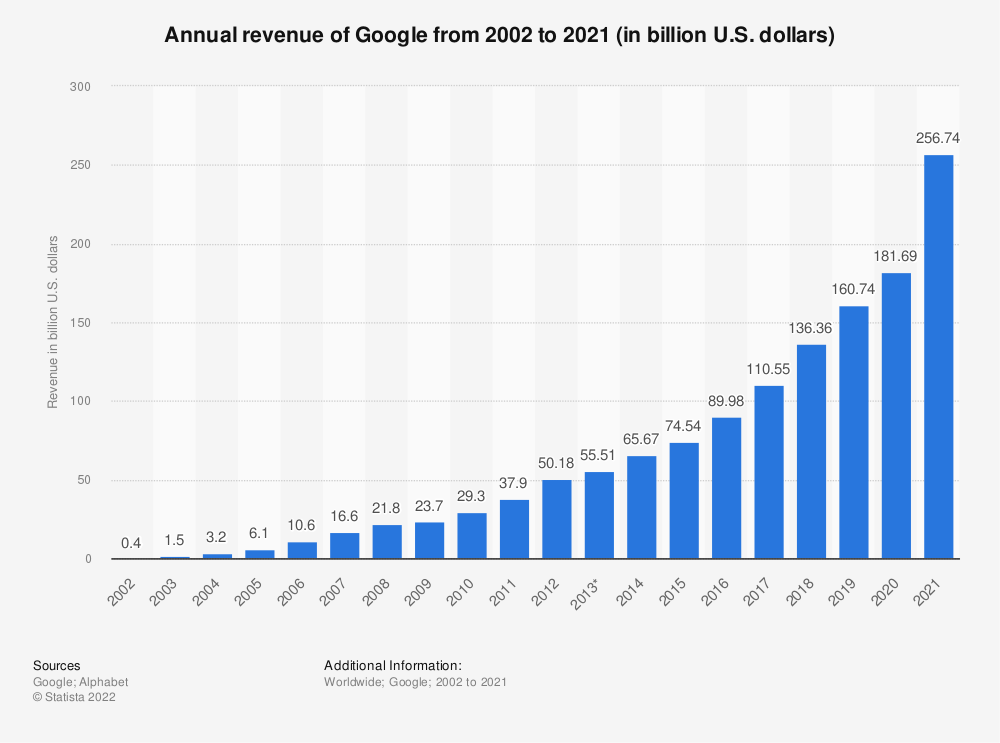
De son côté, Apple, qui a généré 365,82 milliards de dollars de CA en 2021, tire la très grande majorité de ses revenus de la vente de produits matériels (Mac, iPhone, iPad, Apple Watch). Chiffrée à 4 milliards de dollars sur la même année, la publicité représente seulement 1% du CA total de l’entreprise (régie maison Apple Search Ads). Un modèle économique qui permet à Safari de communiquer sur une meilleure protection de la vie privée et d’intégrer des modules anti-suivi (Intelligent Tracking Prevention, option anti-fingerprinting). Il convient toutefois de prendre cette information avec du recul, Apple ne cachant pas ses efforts pour renforcer sa présence sur le marché de la publicité en ligne.
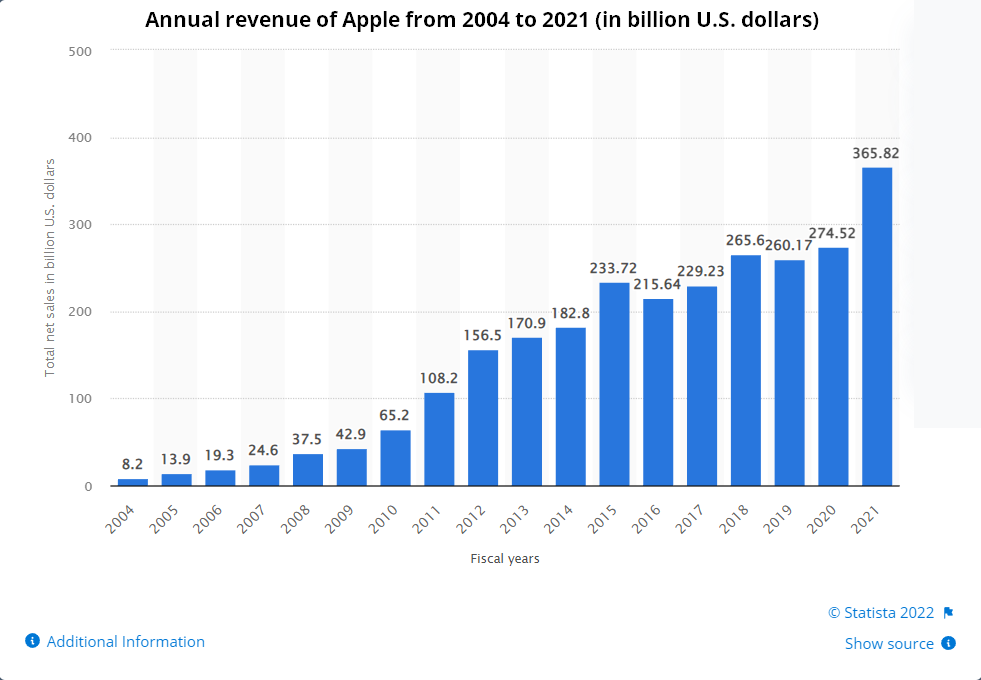
Bien que le point de la confidentialité revienne à Safari, Chrome remporte, à peu de choses près, celui de la sécurité. Présent sur près de 75% des appareils desktop et mobiles dans le monde (Chrome + navigateurs basés sur Chromium), Google est scruté à la loupe et n’a pas le droit à l’erreur. Pour prévenir les failles critiques, maintenir le développement de technologies sécurisées et garantir la stabilité du navigateur, Chromium, et donc Chrome, est systématiquement mis à jour toutes les quatre semaines. L’entreprise a par ailleurs mis en place un programme de récompenses incitant les contributeurs à traquer les vulnérabilités qui passeraient sous le radar des équipes de Google, et des updates ponctuelles sont rapidement déployées en cas de failles de sécurité avérées.
Des engagements de réactivité auxquels Apple a bien du mal à se tenir. Safari bénéficie bien entendu de mises à jour de sécurité et de fonctionnalités, mais à fréquence et régularité moindres. On pourrait imaginer une meilleure sécurité générale du navigateur, permettant de se passer de patchs mensuels. Toutefois, les actualités récentes démontrent plutôt une prise en charge moins efficace des problèmes de sécurité sur Safari.
Alors, Safari ou Google Chrome ?
En dépit des atouts de Google Chrome (couverture multiplateforme et cross-plateforme, cycles de mises à jour rapides, intégration à l’écosystème Google très utilisé dans le monde, nombreuses possibilités de personnalisation), Safari demeure, à notre avis, la solution de navigation à privilégier sur les systèmes macOS et iOS.
Des deux navigateurs web comparés ici, Safari est celui qui respecte le mieux l’état d’esprit Apple et les mécanismes d’usage que les internautes s’attendent logiquement à éprouver. Sa parfaite intégration aux environnements macOS/iOS couplée à la synchronisation iCloud lui permettent d’interagir avec les contenus d’autres applications installées sur le système, mais également de gérer la bascule de la manière la plus fluide possible entre deux appareils Apple. On insiste malgré tout sur les limites de la synchronisation iCloud qui impose d’être connecté au même compte sur tous les appareils utilisés pour pouvoir profiter de sa configuration Safari sur un autre Mac, iPhone ou iPad.
Bien qu’il soit mis à jour moins fréquemment que Google Chrome, Safari demeure une solution correctement sécurisée car développée et gérée en interne par une grande entreprise, et pas n’importe laquelle. On lui reconnaît par là même une gestion plus respectueuse de la vie privée et des données personnelles, tableau sur lequel joue Apple depuis quelques années, en franche opposition à Google.
Il faut enfin se rendre à l’évidence : même si les performances sont équivalentes sur Chrome et Safari, le navigateur d’Apple consomme nettement moins de ressources (threads, CPU, RAM, batterie). L’expérience de navigation est fluide et rapide, au même titre que l’expérience système, quels que soient le nombre d’onglets ouverts et le type de contenus visualisés (texte, vidéo, audio).
Nos autres avis (versus) navigateurs web :
- Brave vs Google Chrome
- Microsoft Edge vs Google Chrome
- Brave vs Mozilla Firefox
Débarquée chez Clubic en 2020 pour parler logiciels, applications et systèmes d’exploitation, je me suis peu à peu spécialisée dans le domaine de la cybersécurité. J’écris essentiellement sur les VPN, mais je couvre aussi les sujets liés à la sécurité des systèmes et des réseaux.
Et FF il pue de la bouche sur MacOS ? (ne jamais mettre de côté l’ami panda)
J’utilise Firefox sous MacOS…
Des deux navigateurs web comparés ici, Safari est celui qui respecte le mieux l’état d’esprit Apple Et le moins les normes :(…
Entièrement d’accord ! Aucune raison d’utiliser Chrome, à part pour la visioconférence où il est supérieur aux autres, Safari est nullissime et Firefox fait le job honnêtement, sans pièger les utilisateurs.
ni l’un ni l’autre : VIVALDI !

Google Chrome just gave you another reason to choose Safari on iPhone
It is no longer deprecating third-party cookies...
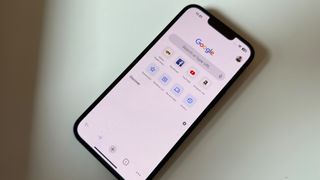
Google has just confirmed it plans to give up on a four-year initiative to end cookies on its Chrome web browser, and will instead look to a new Privacy Sandbox with prompts to let users determine how they’re tracked across its platforms.
In January 2020 Google hailed its path to “building a more private web,” announcing that cookies — tiny packages of information that can used to track user behavior — were headed for the door. The company touted the move as a plan “to build a more trustworthy and sustainable web together,” following both Apple and Mozilla in blocking cookies by default on their browsers.
Now, Google says it has changed its plan following feedback from “a wide variety of stakeholders,” and is no longer planning to deprecate third-party cookies.
Google puts its hand back in the cookie jar
Google has received fairly strong pushback against the move and was asked to pause the rollout by UK regulators in February. The plan has been delayed multiple times previously. Google said it had received “feedback from a wide variety of stakeholders, including regulators like the UK’s Competition and Markets Authority (CMA) and Information Commissioner's Office (ICO), publishers, web developers and standards groups, civil society, and participants in the advertising industry.”
Instead, Google is now looking to leverage a system similar to Apple’s popular App Tracking Transparency measures, which lets users select whether or not they’re tracked using an identifier with an app-level setting.
The news will be a huge boon to Apple as it continues to tout the privacy of its own Safari web browser on iPhone, iPad, and Mac. The company recently launched a not-so-subtle ad campaign targeting Google Chrome with the strap “your browsing is being watched.” As noted, Apple’s browser blocks cookies by default when you’re browsing. Google’s row back on its own plans now means Apple boasts a significant privacy advantage over Chrome.
More from iMore
- Apple takes aim at Chrome with a not-so-subtle ad campaign
- How to stop your iPhone from tracking locations you frequently visit
- How to stop apps from tracking you on iPhone and iPad
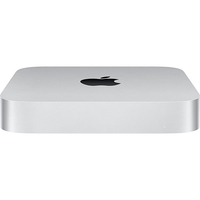
Mac mini M2 | $599 $499 at Amazon
Perfect for Safari, this M2 Mac mini is a powerhouse Mac in a very small factor, with a price tag to match.
Price checker: $599 at Apple | $599 at Best Buy | $599 at B&H Photo
Master your iPhone in minutes
iMore offers spot-on advice and guidance from our team of experts, with decades of Apple device experience to lean on. Learn more with iMore!
Stephen Warwick has written about Apple for five years at iMore and previously elsewhere. He covers all of iMore's latest breaking news regarding all of Apple's products and services, both hardware and software. Stephen has interviewed industry experts in a range of fields including finance, litigation, security, and more. He also specializes in curating and reviewing audio hardware and has experience beyond journalism in sound engineering, production, and design. Before becoming a writer Stephen studied Ancient History at University and also worked at Apple for more than two years. Stephen is also a host on the iMore show, a weekly podcast recorded live that discusses the latest in breaking Apple news, as well as featuring fun trivia about all things Apple. Follow him on Twitter @stephenwarwick9
A key executive is stepping down at Apple
How to watch Apple's 'It's Glowtime' iPhone 16 event on September 9th
Apple Watch X looks more likely to arrive this year for this one key reason
- FFR Did any one except android fanatics actually believe google was going to deprecate their bread and butter Reply
- SvenJ Nothing to see here. Google was postulating some other method of doing what cookies do. Too much opposition, even from supposed consumer friendly groups (EU). So it is as always. If you don't want 3rd party cookies, go into settings and turn them off. Google didn't get more evil, they just didn't get less evil. Reply
SvenJ said: Nothing to see here. Google was postulating some other method of doing what cookies do. Too much opposition, even from supposed consumer friendly groups (EU). So it is as always. If you don't want 3rd party cookies, go into settings and turn them off. Google didn't get more evil, they just didn't get less evil.
- View All 3 Comments
Most Popular
- 2 Snapchat finally comes to iPad in new update — 13 years after debuting on iPhone
- 3 These new BenQ monitors could be the best choice for MacBook users
- 4 Save a massive $200 on the Mac Studio at B&H Photo
- 5 We might be getting a new iPad mini at Apple's September 9th event
- Services & Software
How to Close All Safari, Chrome and Google Tabs on Your iPhone
If you've racked up too many tabs to close individually, these quick steps will help.

- Named a Tech Media Trailblazer by the Consumer Technology Association in 2019, a winner of SPJ NorCal's Excellence in Journalism Awards in 2022 and has three times been a finalist in the LA Press Club's National Arts & Entertainment Journalism Awards.

Sometimes, you've just got too many open tabs to close them individually.
Perhaps you're handing your phone over to someone and want to keep some confidential information, well... confidential. It could be a search for birthday or holiday gifts for your kids that you don't want them to accidentally see or more sensitive or personal information displayed in a browser.
Sure, you could individually close each tab in Safari, Chrome or Google search on your iPhone, but why do that when you can easily nix them all in one fell swoop?
Closing all tabs is a simple enough method that nevertheless isn't always intuitive, so let's walk through how to do it for each platform.
Close all tabs in Safari
Safari perhaps wins the award for least intuitive steps to close all tabs. To do so, you'll want to have a tab open, then hold down the tab icon in the lower right corner (it looks like two overlapping squares). Then, you'll see an option to Close All Tabs . Tap that, confirm you want to close them all, and then they should disappear.
Close all tabs in Chrome
Chrome makes it a little easier than Safari to close all tabs. If you've got a browser open, tap the Switch tabs button on the bottom (a square with the number of tabs inside). Then tap Edit on the lower left side of the screen and hit Close All Tabs .

A couple taps will allow you to quickly close all tabs in Chrome.
Close all tabs in Google search app
It's easy to rack up open tabs in the Google search app, since a new one appears each time you pursue a search result. To close all tabs, click on the square in the lower right corner, which should show the number of how many tabs you have open. Then click on the three dots in the upper right corner and select Close all open tabs . When the popup window appears, select Close all .

The Google search app has slightly different steps for closing tabs than Chrome.
Now you can hand over your phone with the security of knowing your web activity won't become a topic of conversation.
Services and Software Guides
- Best iPhone VPN
- Best Free VPN
- Best Android VPN
- Best Mac VPN
- Best Mobile VPN
- Best VPN for Firestick
- Best VPN for Windows
- Fastest VPN
- Best Cheap VPN
- Best Password Manager
- Best Antivirus
- Best Identity Theft Protection
- Best LastPass Alternative
- Best Live TV Streaming Service
- Best Streaming Service
- Best Free TV Streaming Service
- Best Music Streaming Services
- Best Web Hosting
- Best Minecraft Server Hosting
- Best Website Builder
- Best Dating Sites
- Best Language Learning Apps
- Best Weather App
- Best Stargazing Apps
- Best Cloud Storage
- Best Resume Writing Services
- New Coverage on Operating Systems
Make Chrome the default browser for your iPhone
When you set Chrome as the default browser on your iPhone, you can easily sync your Google account across multiple devices. You must have iOS 14 or newer to make Chrome the default browser on your iPhone.
Get Chrome on your iPhone
After downloading Chrome on your iPhone, you can set it as your default browser and easily sync Chrome with your computer. You must have iOS 14 or newer to make Chrome the default browser on your iPhone.

Scan this code with your phone's camera to get Chrome.

Follow these quick steps:
Make chrome the default browser for your iphone:.
Step 1 of 4
Step 2 of 4
Step 3 of 4
Step 4 of 4
Get the Chrome app
Install the latest version of Chrome.
Open Chrome Settings
Tap More ( ) on your screen, then Settings .
Tap "Default Browser"
Then tap Open Chrome Settings .
Tap "Default Browser App"
Select Chrome as your default browser.
Open the Chrome app
Open the latest version of Chrome on your iPhone.
In Settings tap Default Browser > Open Chrome Settings .
Tap Default Browser App and select Chrome .
Step 1 of 3
Step 2 of 3
Step 3 of 3
From Chrome, tap More ( ) on your screen, then Settings .
Open the Chrome app on your iPhone.
Why make Chrome your default browser?

Get your bookmarks and passwords anywhere
Access your bookmarks, history, and tabs from any device. Chrome can securely store your passwords and payment info for quick use.

Built by Google
Chrome is the fast, secure browser built by Google. Tools like Google Search, Google Translate, and Google Pay are built right into Chrome, so you can get to them quickly.

Use the Chrome widget to search from your Home Screen
Get the Chrome widget for your home screen for quick access to Chrome features like Google Search, Incognito, and QR scanner.
- Visit our support page
- Watch a video tutorial for setting your default iPhone browser
Was this helpful?
Thank you for your feedback.

Get Chrome for Windows
For Windows 10 32-bit.
For Windows 11/10 64-bit.
For Windows 11 ARM.
For Windows XP/Vista.
This device won’t receive updates because Google Chrome no longer supports your operating system.
For Windows 8.1/8/7 32-bit.
For Windows 8.1/8/7 64-bit.
Get Chrome for Mac
For macOS 10.15 or later.
This computer will no longer receive Google Chrome updates because macOS 10.6 - 10.12 are no longer supported.
For macOS 10.13/10.14
Get Chrome for Linux
Debian/Ubuntu/Fedora/openSUSE.
Please select your download package:
Not Debian/Ubuntu or Fedora/openSUSE? There may be a community-supported version for your distribution. See Linux Chromium packages
Get Chrome for iOS
Get chrome for chromeos, get chrome for android.
By downloading Chrome, you agree to the Google Terms of Service and Chrome and ChromeOS Additional Terms of Service
Note: Installing Google Chrome will add the Google repository so your system will automatically keep Google Chrome up to date. If you don’t want Google's repository, do “sudo touch /etc/default/google-chrome” before installing the package.
Download for phone or tablet
Download for another desktop OS
- Windows 11/10 64-bit
- Windows 10 32-bit
- Windows 11 ARM
- macOS 10.15 or later
Frozen versions
- Windows Vista
- Windows 8.1/8/7 32-bit
- Windows 8.1/8/7 64-bit
- Mac 10.6 - 10.8
- Mac 10.11 - 10.12
- Mac 10.13 - 10.14
Looks like you’re already using Chrome browser. Nice!
The device you have runs on ChromeOS, which already has Chrome browser built-in. No need to manually install or update it — with automatic updates, you’ll always get the latest version. Learn more about automatic updates.
Looking for Chrome for a different operating system?
See the full list of supported operating systems .
Connectez-vous ou créez un compte
Pour pouvoir enregistrer un article, un compte est nécessaire.
- Metz et agglomération
- Saint Avold - Creutzwald
- Sarrebourg - Château Salins
- Sarreguemines - Bitche
- Thionville - Hayange
- Newsletters
- Libra Memoria
- Mon Séjour en Montagne

jeu. 29/08/2024
- Activer JavaScript dans votre navigateur pour accéder à l'inscription sur notre site
Si vous voyez ce champ, ne le remplissez pas
Le Républicain Lorrain, en tant que responsable de traitement, recueille dans ce formulaire des informations qui sont enregistrées dans un fichier informatisé par son Service Relations Clients, la finalité étant d’assurer la création et la gestion de votre compte, ainsi que des abonnements et autres services souscrits. Si vous y avez consenti, ces données peuvent également être utilisées pour l’envoi de newsletters et/ou d’offres promotionnelles par Le Républicain Lorrain, les sociétés qui lui sont affiliées et/ou ses partenaires commerciaux. Vous pouvez exercer en permanence vos droits d’accès, rectification, effacement, limitation, opposition, retirer votre consentement et/ou pour toute question relative au traitement de vos données à caractère personnel en contactant [email protected] ou consulter les liens suivants : Protection des données , CGU du site et Contact . Le Délégué à la Protection des Données personnelles ( [email protected] ) est en copie de toute demande relative à vos informations personnelles.
- Dans un article
- Dans ma ville
- Sarreguemines
- Saint-Avold
- Château-Salins
- Val de Briey
- Consommation
- Supprimer l'App Store ou Safari de son iPhone : pourquoi c'est une petite révolution
Tech Supprimer l'App Store ou Safari de son iPhone : pourquoi c'est une petite révolution
Apple va désormais permettre aux utilisateurs de ses smartphones et tablettes dans l'Union européenne de supprimer les applications de la marque installées par défaut sur ses appareils, comme l'App Store ou le navigateur Safari, afin de se conformer aux nouvelles règles de concurrence de l'UE.

Safari fait partie des applications que les utilisateurs d'iPhone pourront supprimer. Photo d'illustration Sipa/SOPA Images
Ç a n'a l'air de rien mais c'est bien une petite révolution qui se joue en cette rentrée. Apple va désormais permettre aux utilisateurs de ses smartphones et tablettes dans l'Union européenne de supprimer les applications de la marque installées par défaut sur ses appareils, comme l'App Store ou le navigateur Safari. Une décision qui fait suite au bras de fer entre la firme américaine et l'UE concernant les nouvelles règles de concurrence.
App Store, Messages, Camera, Photos et Safari...
Le fabricant de l'iPhone a construit son succès en partie sur son écosystème fermé, avec des outils ultra compatibles entre eux sur différents appareils. Les utilisateurs ne peuvent que difficilement contourner l'App Store pour télécharger des applications mobiles via d'autres plateformes. « Les applications App Store, Messages, Camera, Photos et Safari pourront être supprimées pour les utilisateurs de l'UE », a indiqué Apple sur une page web d'aide aux développeurs. « Seules les applications Réglages et Téléphone ne pourront pas être supprimées. » Les utilisateurs européens d'iPhone ou d'iPad pourront en outre gérer les paramètres par défaut des navigateurs, de la messagerie, des appels téléphoniques et d'autres fonctions, selon Apple.
Depuis l'entrée en vigueur du règlement sur les marchés numériques (DMA) il y a un an, Apple et les autorités européennes sont engagées dans un bras de fer rythmé par des procédures et des menaces. « Les règles de l'App Store enfreignent le DMA, elles empêchent les développeurs d'applications d'orienter les consommateurs vers des canaux de distribution alternatifs pour des offres et du contenu », a estimé Bruxelles dans un « avis préliminaire » en juin, après une enquête.
30 milliards d'euros d'amende
Si la firme américaine ne modifiait pas l'App Store d'une manière jugée satisfaisante par l'UE, elle pourrait écoper d'une amende allant jusqu'à 10 % de son chiffre d'affaires mondial - soit plus de 30 milliards d'euros sur la base des ventes de l'an dernier -, et même jusqu'à 20 % en cas d'infraction répétée. Apple a longtemps défendu son écosystème fermé au nom de la sécurité, affirmant que l'ouvrir serait l'exposer au risque d'infiltration par des programmes piégés, compromettant la confidentialité des données des utilisateurs.
Critères spécifiques à respecter
« Afin d'assurer la sécurité des utilisateurs en ligne, Apple n'autorisera les développeurs à proposer des navigateurs alternatifs qu'après avoir rempli des critères spécifiques et s'être engagé à respecter un certain nombre d'exigences en matière de confidentialité et de sécurité », a précisé la société dans son message à l'intention des développeurs.
A lire aussi
Google garde les cookies tiers dans Chrome : pourquoi et qu'est-ce que ça change ?
Le paiement sans contact au-delà de 50 euros : comment ça va marcher ?
De nombreuses entreprises, comme Epic Games (Fortnite) et Spotify, luttent depuis des années contre l'écosystème d'Apple, qui oblige les éditeurs d'applications à passer par l'App Store, et donc à verser une commission à Apple. Le groupe californien avait promis le mois dernier de faire les changements nécessaires pour se conformer au DMA. Ce nouveau règlement a été introduit pour protéger l'émergence et la croissance de start-up en Europe et offrir plus de choix aux consommateurs.
- France - Monde
- Science et Technologie
6 things you can do with Chrome on iOS
Feb 14, 2024
[[read-time]] min read
Chrome on iOS comes with advanced safety features and makes it easy to access all your saved passwords and bookmarks.

We’ve built Chrome to be fast, secure and easy to use on any device — including iPhones and iPads. Here are some ways Chrome on iOS can help you out on the web, from searching with images to securing your passwords.
1. Access information across devices
When you’re signed into Chrome with your Google Account, you can access important information — like saved passwords, payment details, autofill information, bookmarks and tabs — across your devices. So you can switch to your iPhone, iPad, Macbook or even Windows PC and still find the details you need.
2. Search with your camera
With Google Lens in Chrome, you can search with images to identify plants and animals, look up a certain outfit, get homework help and more. To use Lens in Chrome on iOS, long-press an image you find while browsing. You can also search with new pictures you take or existing images in your camera roll.
3. Translate webpages
Say you’re planning to visit a museum in France, but the site’s entirely in French and you don’t speak the language. Chrome will automatically offer to translate the website into your preferred language, or more than 100 other options, thanks to Google Translate. You can also translate a specific portion of a page right within Chrome.
4. Sign in with your passwords across apps and the web
Google Password Manager in Chrome helps you quickly and securely sign into sites and iOS apps. It can suggest strong and secure passwords, and store them for you in one safe place. And Password Checkup automatically identifies security issues with your passwords — like notifying you if your password has been compromised in a breach and helping you immediately reset it.
5. Stay safe from phishing and other malicious websites
Enhanced protection is the fastest and strongest level of protection against dangerous sites that Safe Browsing offers in Chrome. If you enable it on your iPhone or iPad, the feature uses real-time threat data to proactively warn you if webpages are dangerous.
6. Customize your address bar
You can choose a new position for your address bar in Chrome on iOS — at the bottom of your iPhone screen. If you’d like to move your address bar, long-press it and select the "Move address bar to bottom" option. Or just navigate to the Settings menu and select “Address Bar” to choose your preferred position.
Interested in trying Chrome on iOS? If you don’t already have Chrome on your device, download it from the App store . And follow the instructions below to make Chrome your default browser .

Step 1 of 7: Open the Chrome app.

Step 2 of 7: In the bottom right corner, tap the three dots.

Step 3 of 7: Scroll to the right and tap Settings.

Step 4 of 7: Tap Default Browser.

Step 5 of 7: Tap Open Chrome Settings.

Step 6 of 7: Tap Default Browser App.

Step 7 of 7: Tap Chrome. If you don't see the option to change your default browser, you might need to update to the latest version of Chrome.
Related stories

3 new Chrome AI features for even more helpful browsing

5 new Chrome features to help you search on mobile

How we developed Chrome’s first AI tools
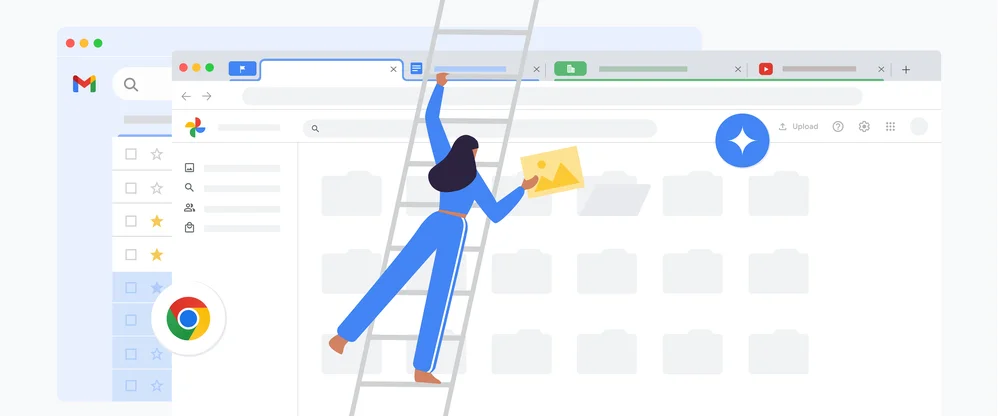
5 AI tools to help organize your digital life

Download the new Chrome on your Arm-compatible Windows PC

Browse safely with real-time protection on Chrome
Let’s stay in touch. Get the latest news from Google in your inbox.

COMMENTS
Safari vs. Chrome - Performance and speed. As Apple optimizes Safari for its devices, it often outperforms Chrome regarding speed and battery efficiency. Safari's performance is particularly notable on iPhones and Mac devices. I have experienced smoother browsing and longer battery life using Safari. Chrome has made significant improvements ...
1. Features. First up in our Google Chrome vs Safari showdown, we'll explore each of the browser's features. It's fair to say that Safari and Google both cover the basics of a good browsing ...
Bonus! Chrome vs. Safari: 5 random facts Google Chrome. Former Google CEO Eric Schmidt was against the idea of developing an independent browser for many years. Google co-founders Sergey Brin and Larry Page eventually built a demo version, forcing Schmidt to change his mind. The T-rex in Chrome's offline Dinosaur Game is named Steve.
O Google fez recentemente atualizações no navegador Chrome que melhoraram significativamente seu desempenho nos dispositivos da Apple. E, após realizar vários testes de velocidade no WebSPRT 4, nossos resultados mostram que o Chrome é ligeiramente mais rápido que o Safari, tanto no Mac quanto no iPhone.
Shown here on an iPhone 6s Plus, Safari uses bigger screens more effectively than Chrome. Additionally, Safari places many commonly used buttons (page left, page right, Share, Bookmarks, tab view ...
Chrome works on all major platforms including Android, Linux, iOS, macOS, and Windows. So, whether you're all-in on Apple products or prefer to mix things up, you can access your Chrome information across devices. Safari is limited to iOS and macOS devices. Unless you have an iPhone, iPad, or Mac computer, you're out of luck.
Google Chrome vs. Safari: A Quick Glance. Google Chrome was developed by Google and released in 2008, quickly becoming the most popular web browser in the world with a current market share of 65%. Safari, on the other hand, was developed by Apple and first released in 2003, exclusively available on Apple devices. Google Chrome. Released: 2008
Safari runs more efficiently than Chrome, and it conserves system resources and battery life of iOS and Mac devices, especially when managing multiple tabs. That said, since it outperforms Safari slightly in all benchmarks, Chrome holds the edge in overall performance. 2. Energy Usage.
In fact, in 2014, CNET did a "Mobile Browser Showdown" between Chrome, Safari and Opera on the iPhone 5S. In this informal experiment, Chrome was a bit quicker than Safari in two out of three ...
It's interesting to note that, in terms of widgets, Google has outperformed Apple; Chrome has more widget possibilities than Safari. Most notably, Chrome has lock screen widgets that Safari does not. Google Chrome Vs Safari: Cross-platform Availability. Let's first see if Safari and Chrome are cross-platform compatible before comparing them.
Chrome maintains its longtime lead on this test with a score of 528. Edge, Opera, and other Chromium-based browsers hew closely to Chrome. Firefox and Safari bring up the rear, at 515 and 468 ...
Overall, both Safari and Google Chrome offer unique approaches to user interface and design. While Safari prioritizes simplicity and elegance, Google Chrome emphasizes ease of use and consistency. Ultimately, the choice between the two will come down to personal preference and the specific needs of the user.
Reduce CPU usage. App Tamer. Learn more. To use App Tamer against Chrome: Click to open the app in the menu bar. Select Google Chrome. Check "Slow down this app if it uses more than". Choose the percentage (e.g. 10%) Verdict: Safari is definitely the speedier and more lightweight browser of the two.
The browser has a Reader mode, which removes ads and other distractions from web pages for a more immersive reading experience. Safari also has a Private Browsing mode, which prevents the browser from saving browsing history, cookies, or other data. In conclusion, both Google Chrome and Safari offer user-friendly interfaces that prioritize ease ...
On your iPhone or iPad, go to Chrome on the App Store. Tap Get. To install, follow the on-screen instructions. If asked, enter your Apple ID Password. To start browsing, tap Open . To open Chrome from your Home screen, tap Chrome . Tips: Touch and hold Chrome to: Start a new search.
Today we will compare the most famous browsers for smartphone i.e. Chrome vs Safari browser for iPhone and iPad devices. As we know, Google Chrome is the best browser in the market by Google itself. On the other hand, the Safari web browser is the product of Apple. Since both, the browsers come with some power-packed features. We are here with ...
For that matter, Safari won't work with a Chromebook or Linux computer either. However, if the mobile app matches the installed desktop browser, synchronization data between the two is still possible. For those using Google Chrome on a computer, it might make the most sense to use it on the iPhone as well. The same is true of Mozilla's Firefox ...
Apple 's Safari browser has come a long way since its Mac OS X Panther debut in 2003, but a slew of incoming Chrome upgrades suggest Google 's browser could still be the better option for ...
Safari's user interface impresses with a clean layout, while Google Chrome offers more customization options in its Material You makeover. Safari's memory usage advantage over Chrome on Mac with ...
Best. Open comment sort options. Add a Comment. EpiphanicSyncronica. •. Chrome is bloated and designed to help Google monetize you by spying on you. Safari is much better. On macOS, Windows, or Linux, Firefox is solid, and if you need a chromium browser that uses Chrome extensions, Brave or Vivaldi is a much better, more privacy-respecting ...
Alors, Safari ou Google Chrome ? Safari vs Google Chrome - La philosophie Déployé gratuitement sous licence propriétaire en septembre 2008, Google Chrome a rapidement su conquérir le web.
The news will be a huge boon to Apple as it continues to tout the privacy of its own Safari web browser on iPhone, iPad, and Mac. The company recently launched a not-so-subtle ad campaign targeting Google Chrome with the strap "your browsing is being watched.". As noted, Apple's browser blocks cookies by default when you're browsing.
Close all tabs in Chrome. Chrome makes it a little easier than Safari to close all tabs. If you've got a browser open, tap the Switch tabs button on the bottom (a square with the number of tabs ...
Change your browser to Chrome in iOS and set Chrome as your default browser on your iPhone to easily access Google products like Google Search.
Tech Supprimer l'App Store ou Safari de son iPhone : pourquoi c'est une petite révolution ... Google garde les cookies tiers dans Chrome : pourquoi et qu'est-ce que ça change ?
2. Search with your camera. With Google Lens in Chrome, you can search with images to identify plants and animals, look up a certain outfit, get homework help and more. To use Lens in Chrome on iOS, long-press an image you find while browsing. You can also search with new pictures you take or existing images in your camera roll.
Pour supprimer votre historique de Safari, allez dans Réglages > Safari > Effacer votre historique. Sur Chrome. Si vous utilisez Google Chrome, vous pouvez facilement supprimer votre historique de recherches sur votre iPhone en suivant ces étapes : Étape 1. Ouvrez l'application Google Chrome. Étape 2. Cliquez sur « Plus » > « Historique ».